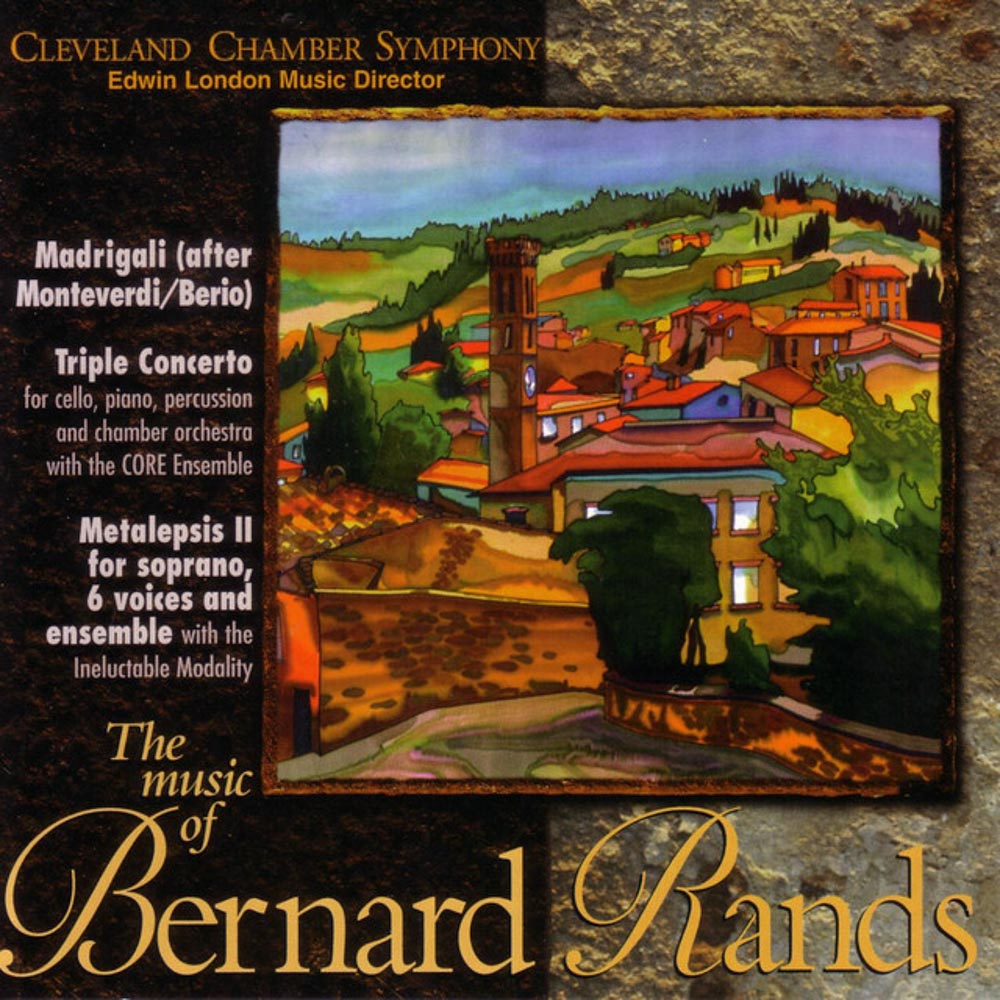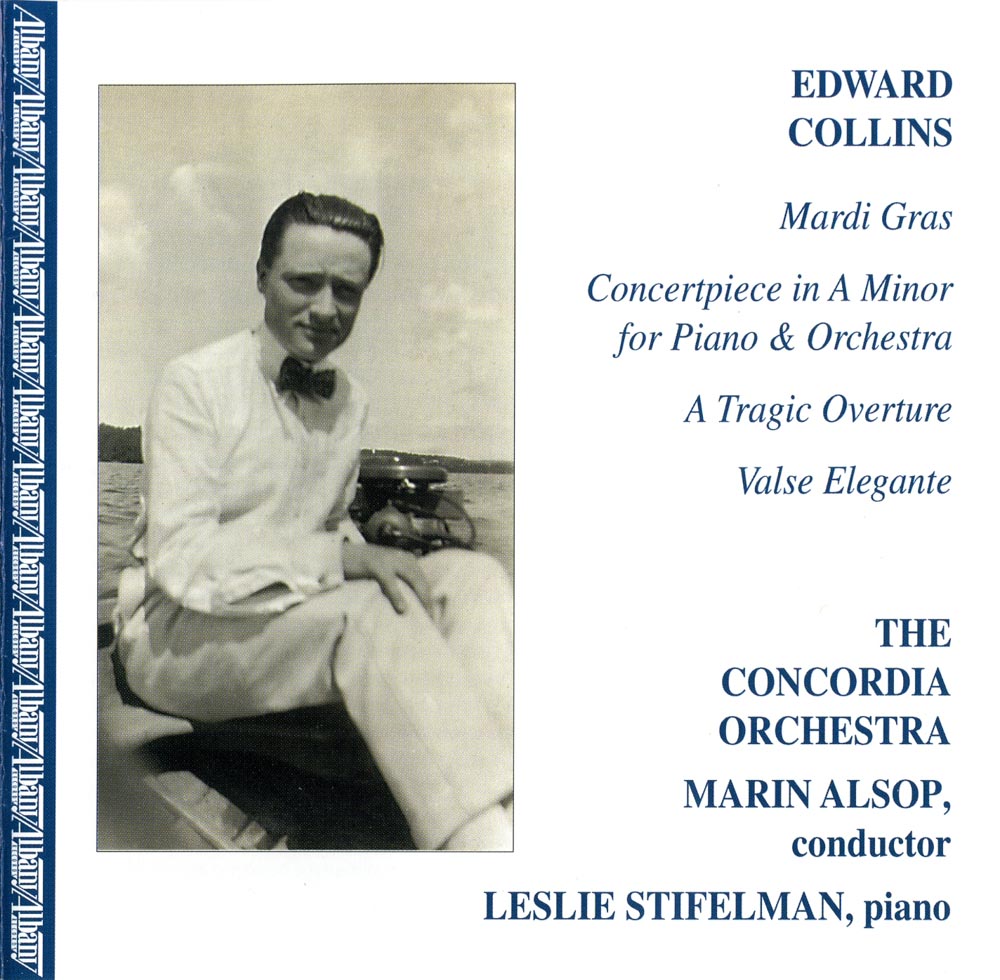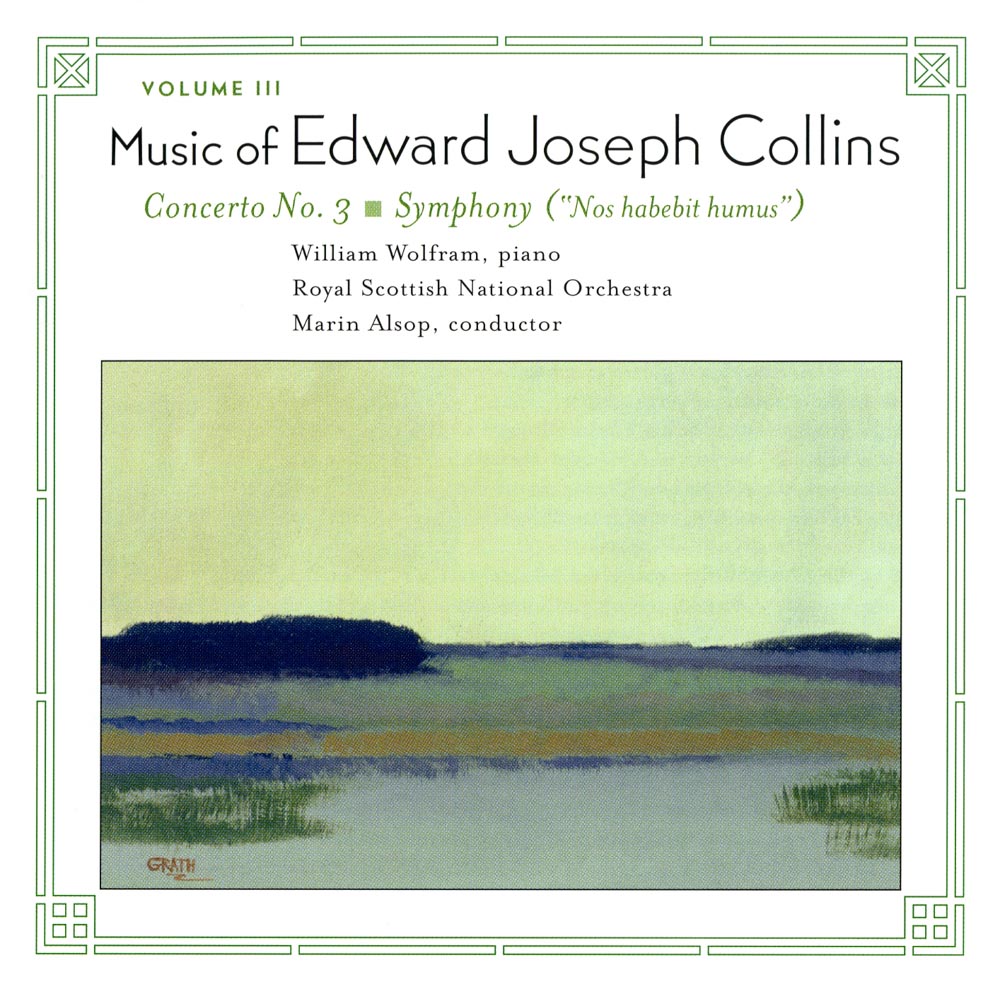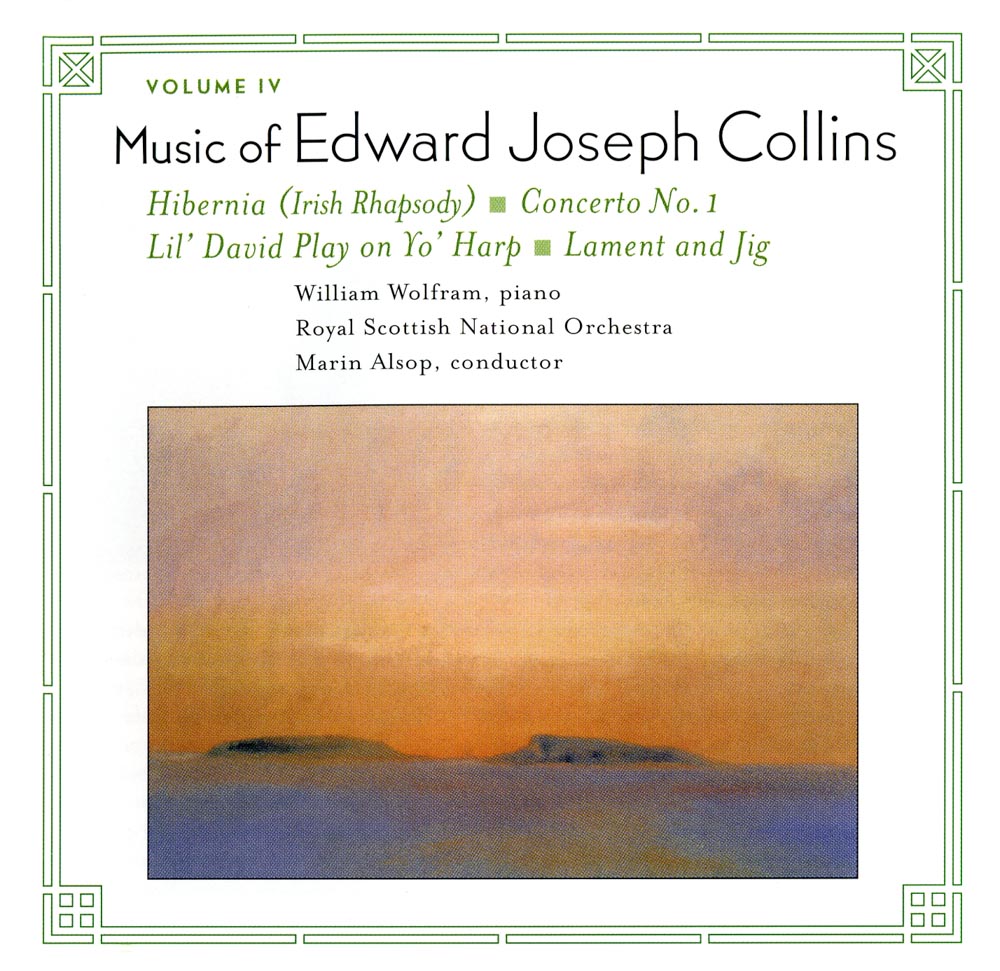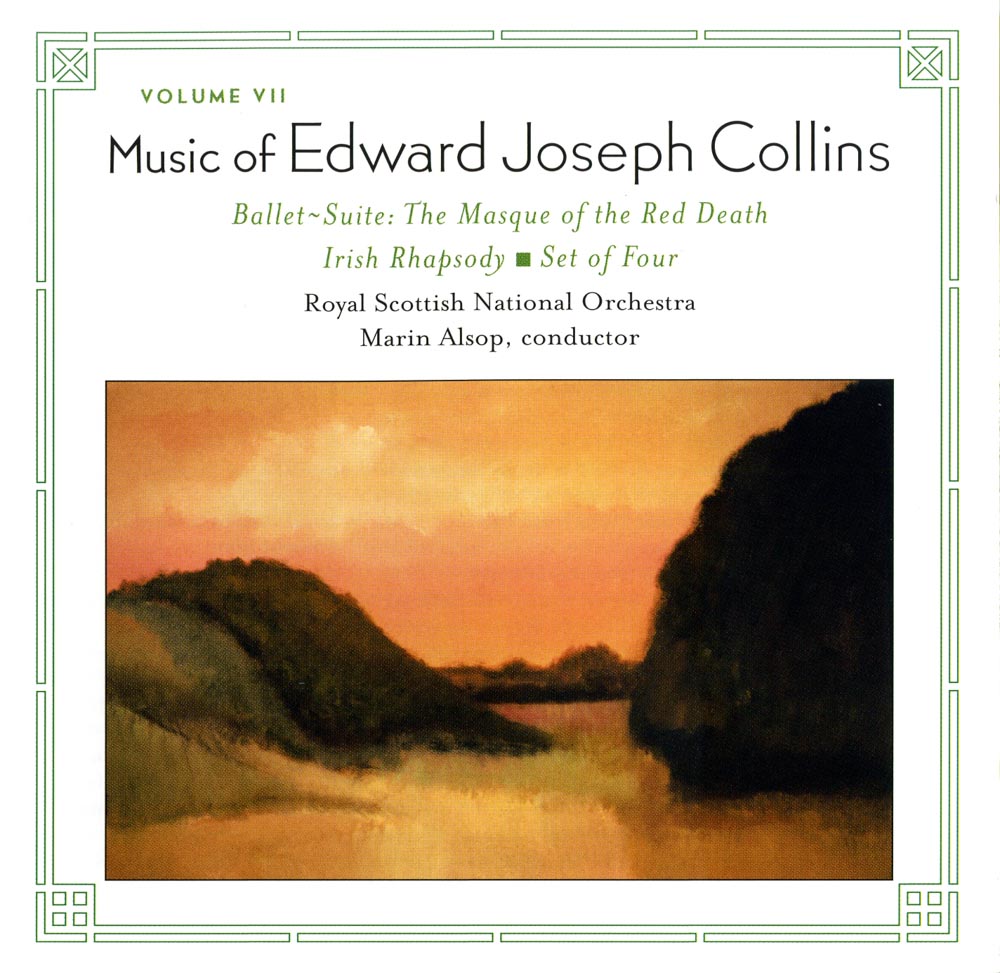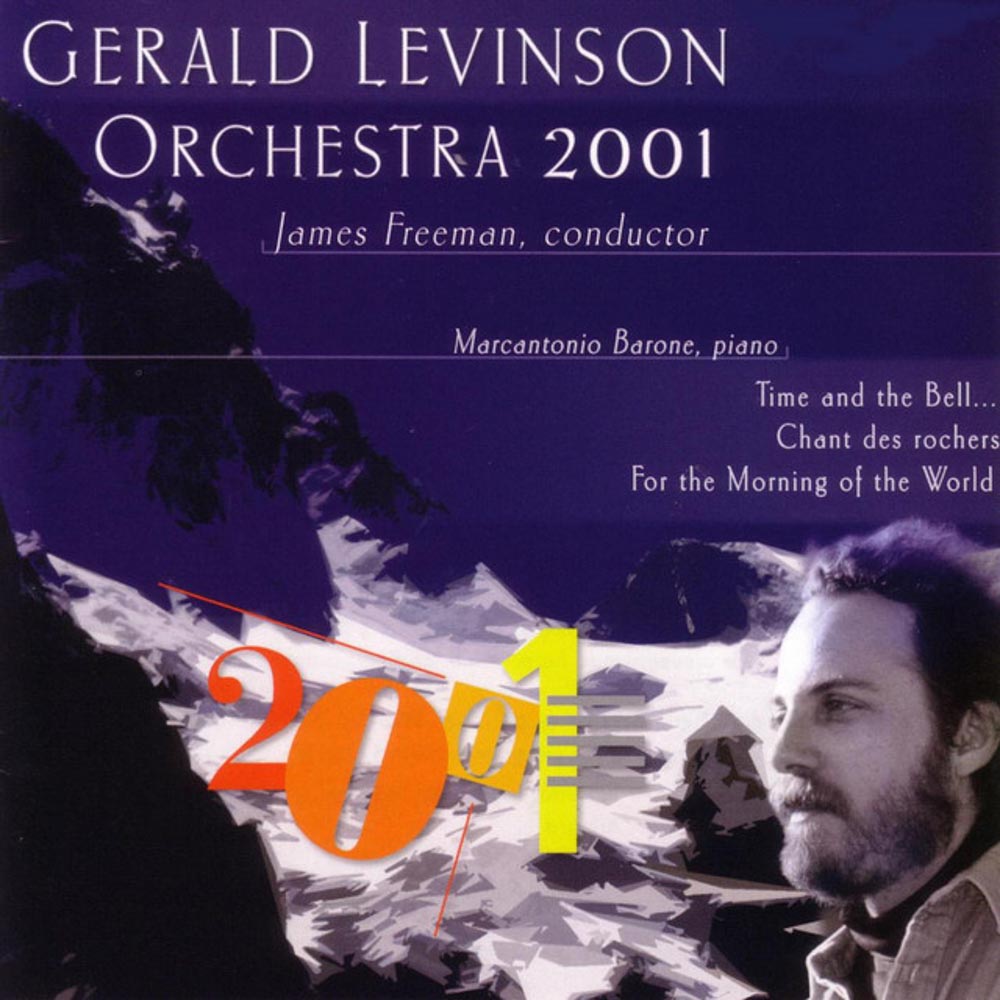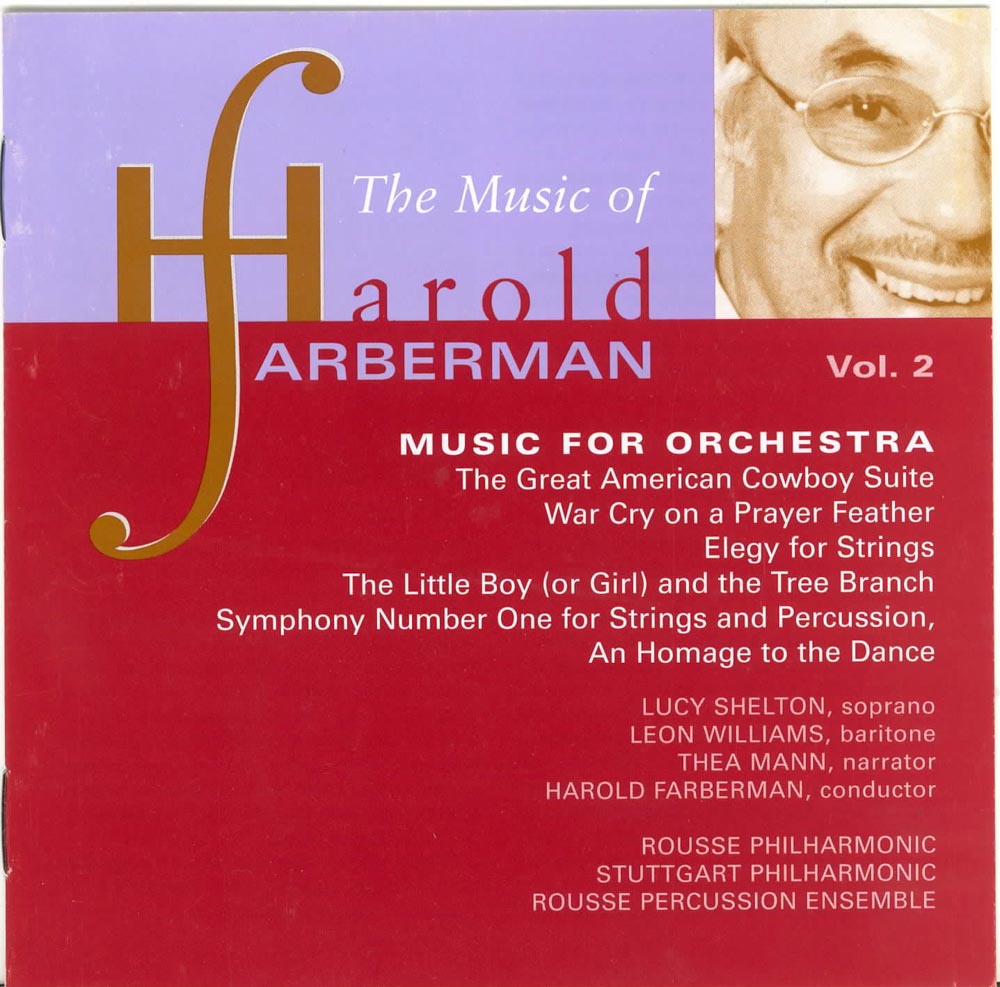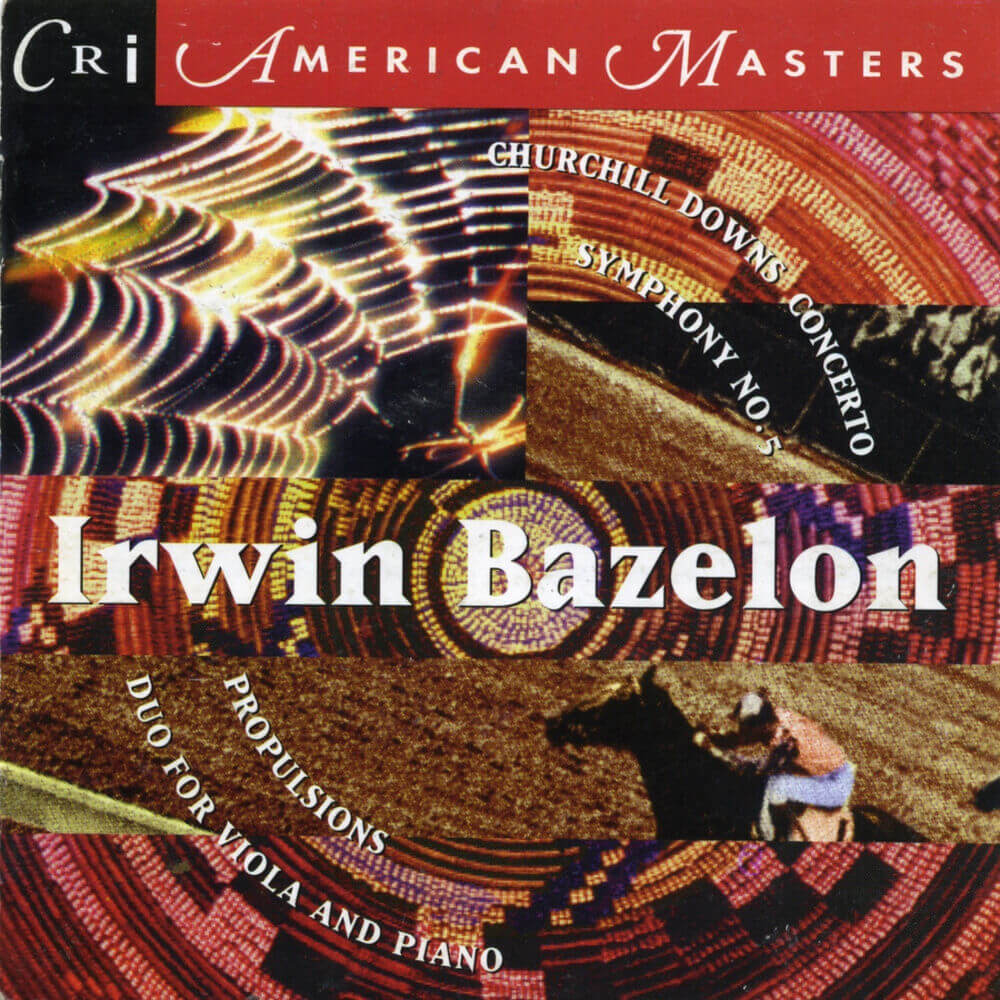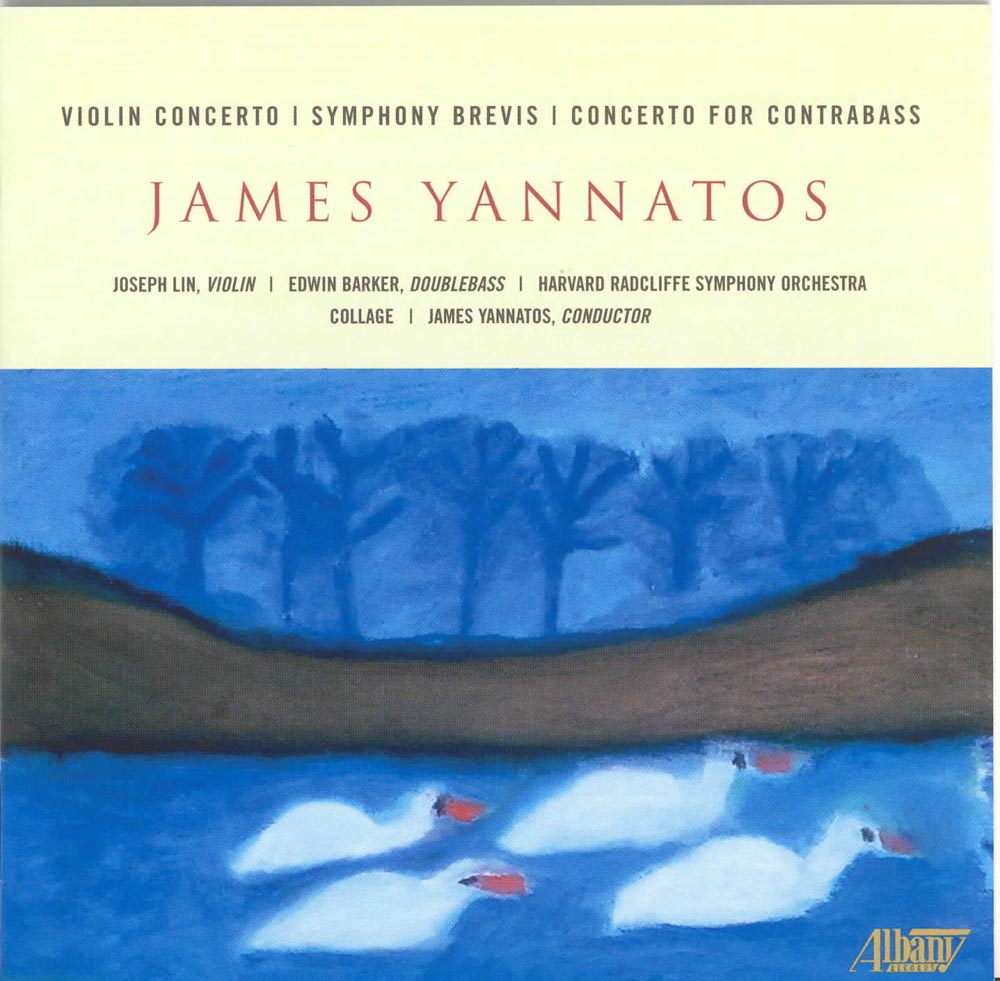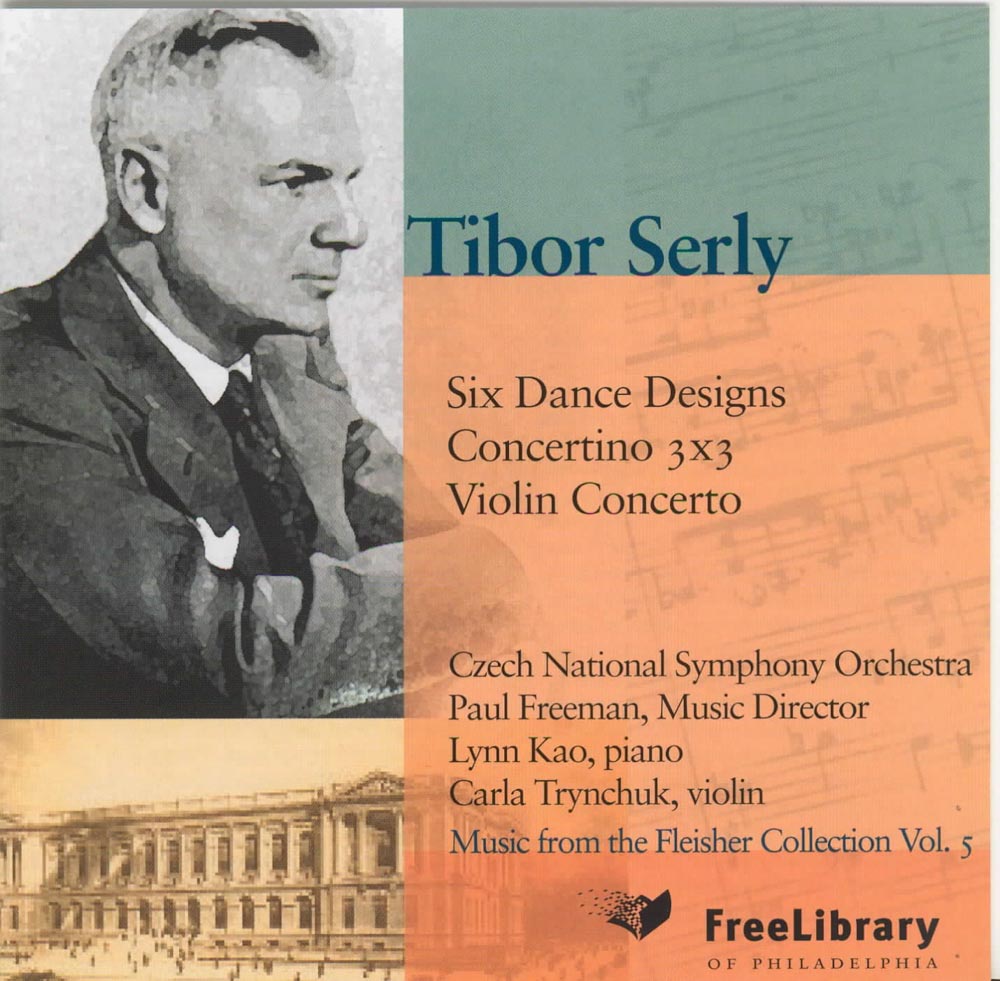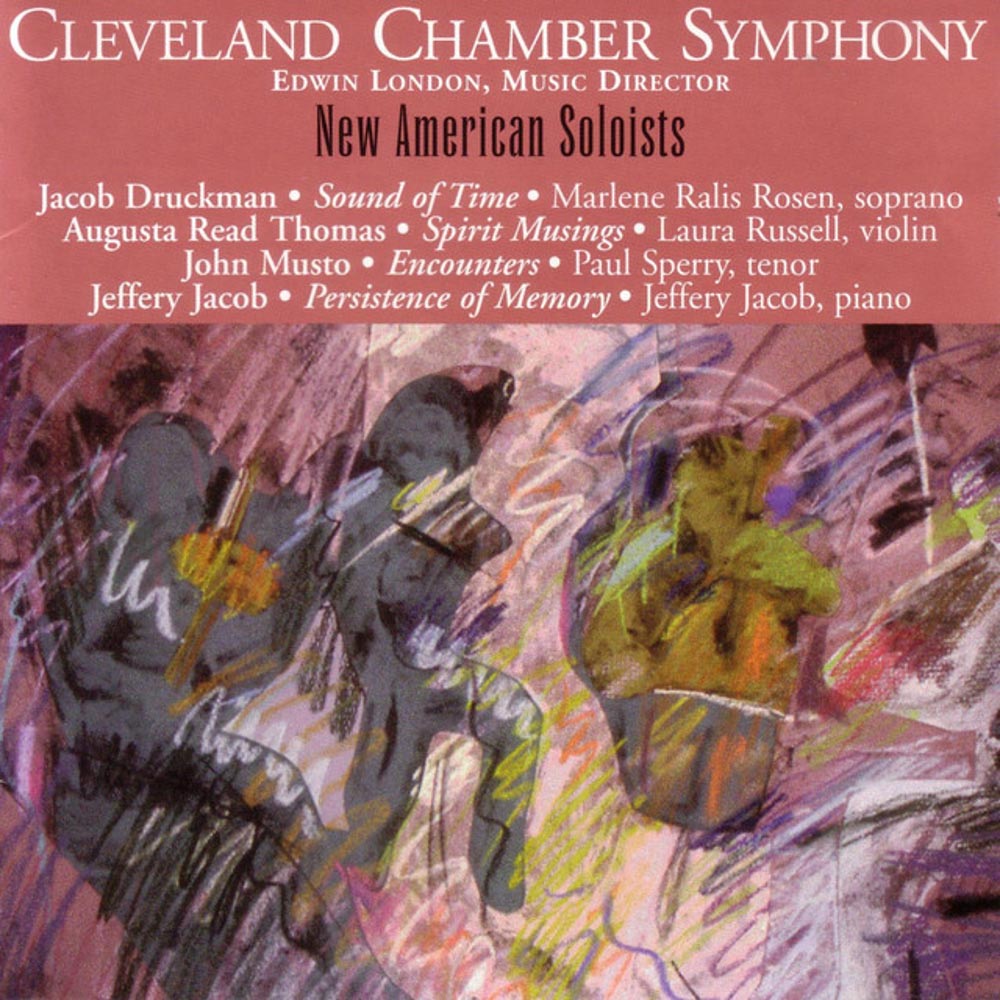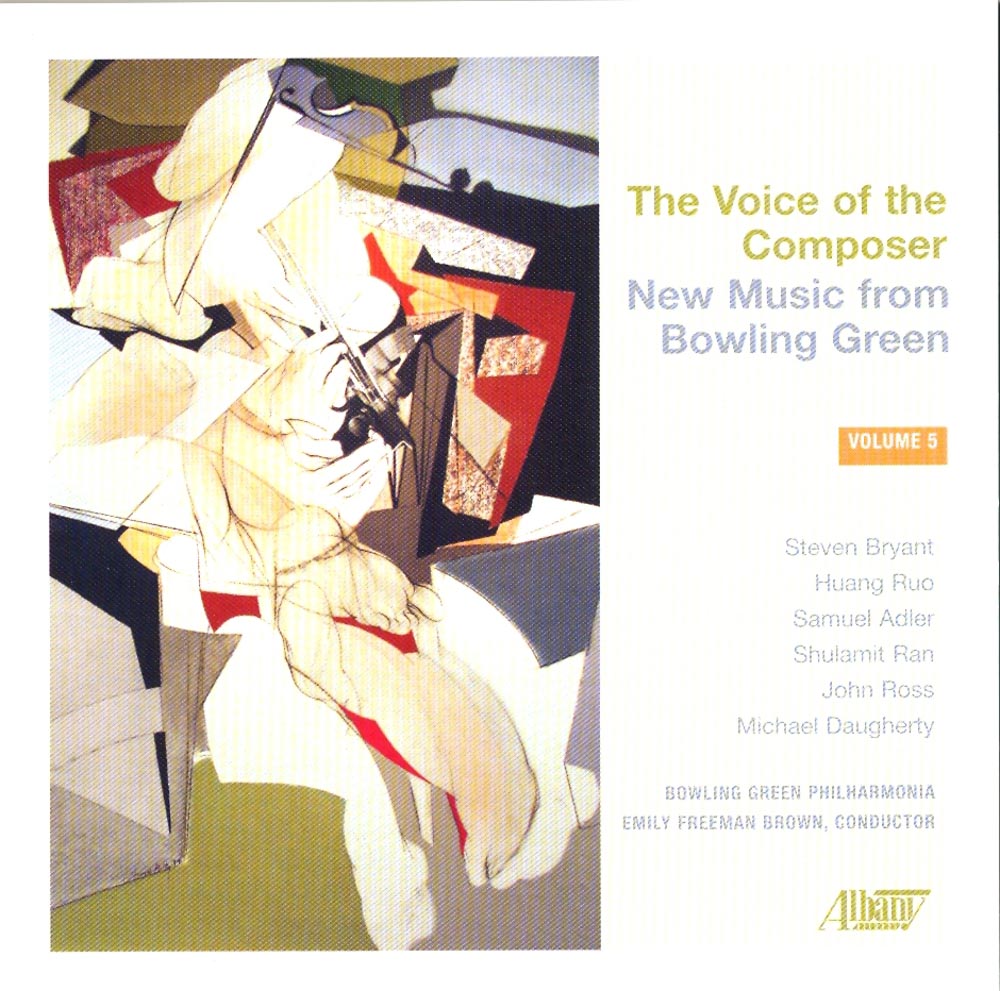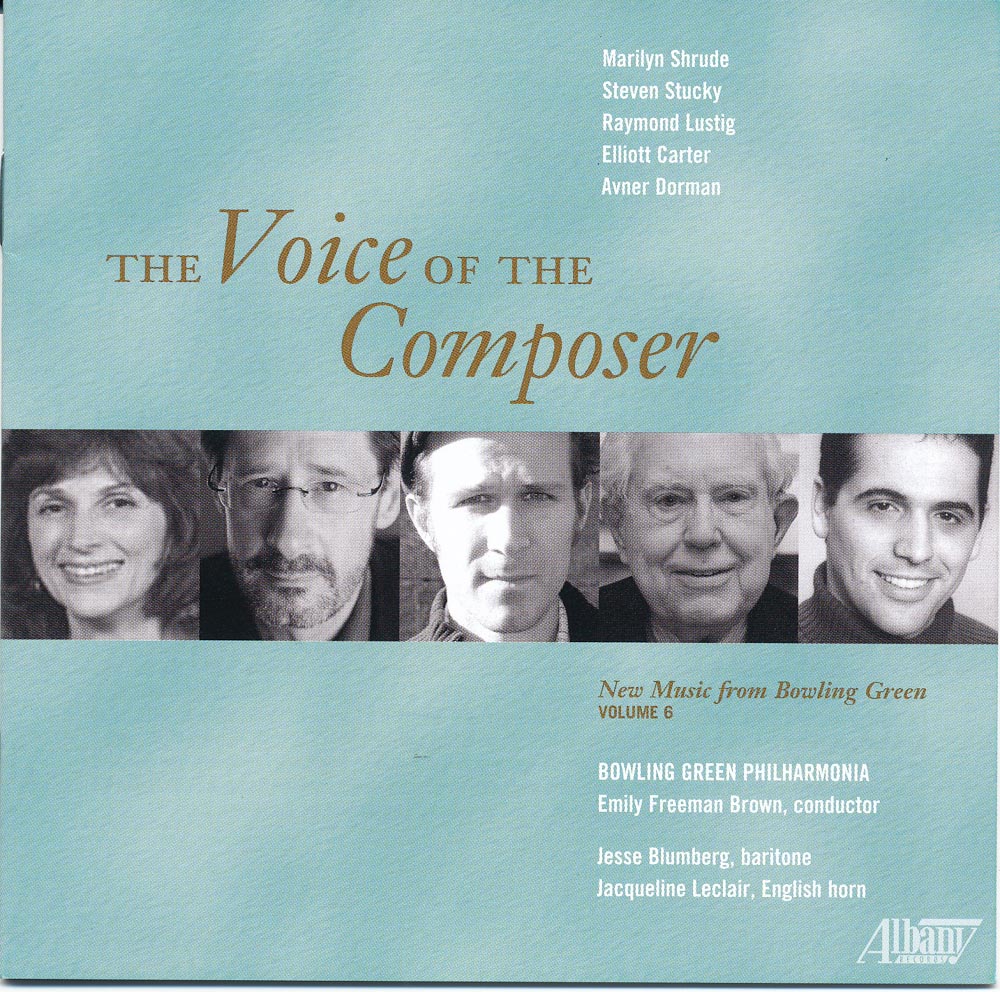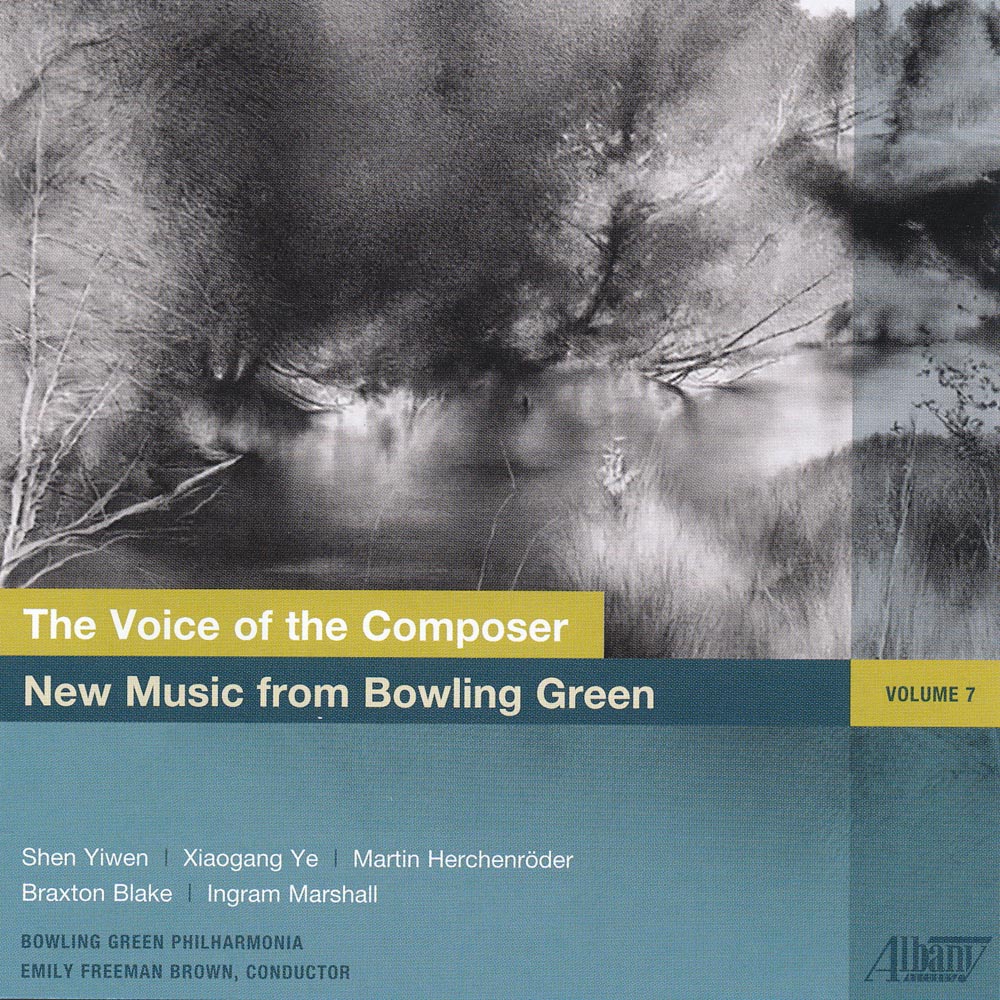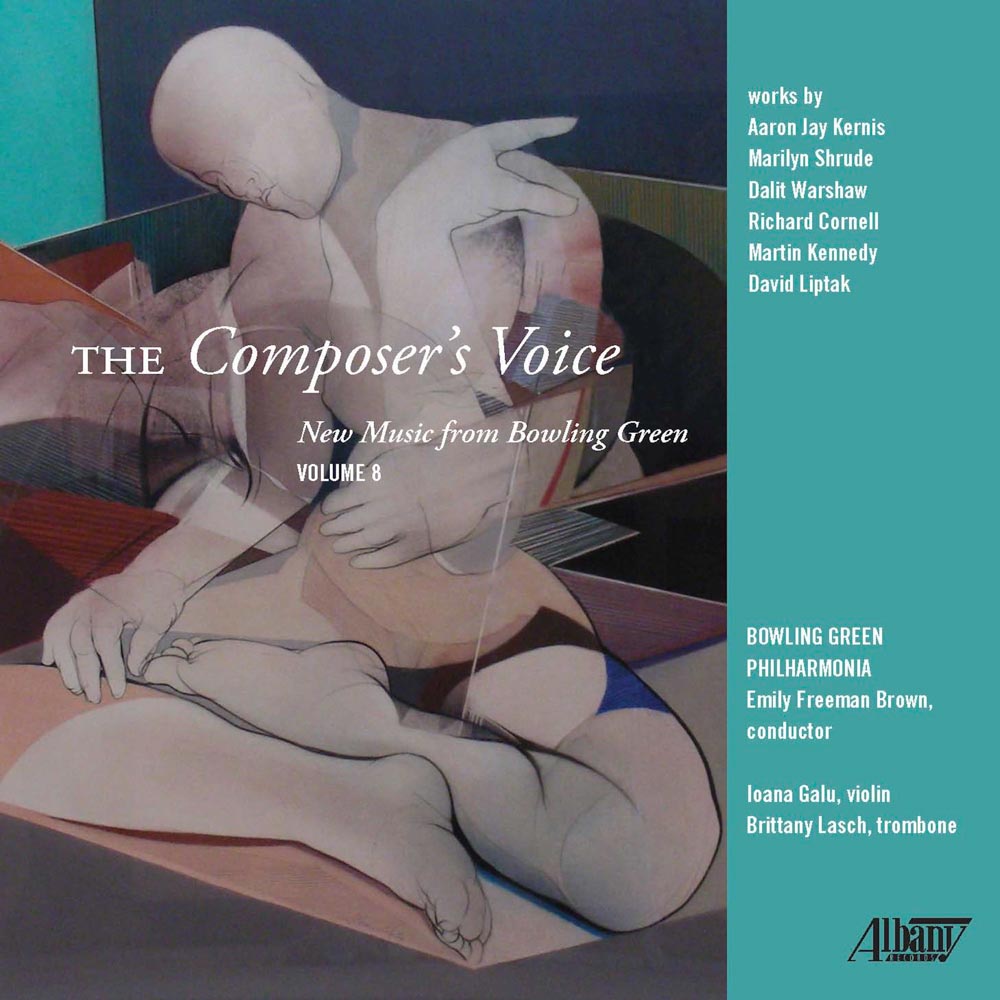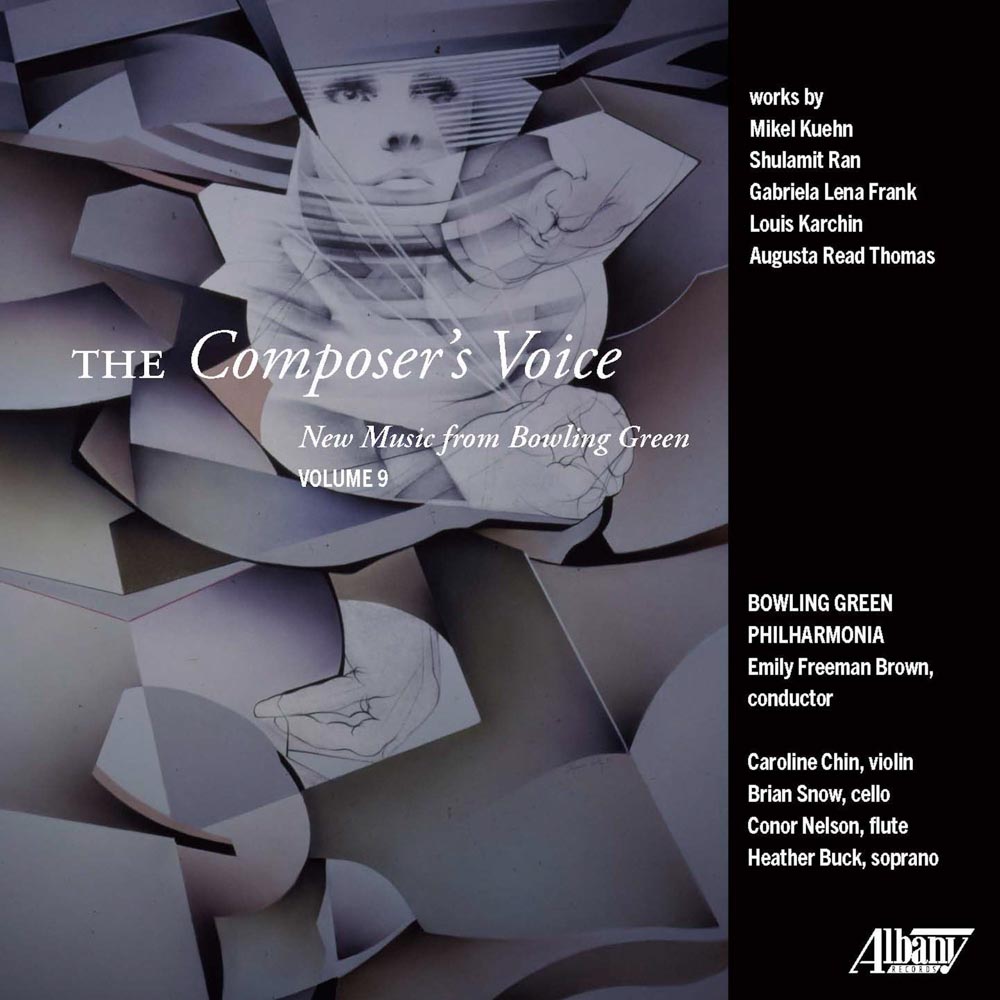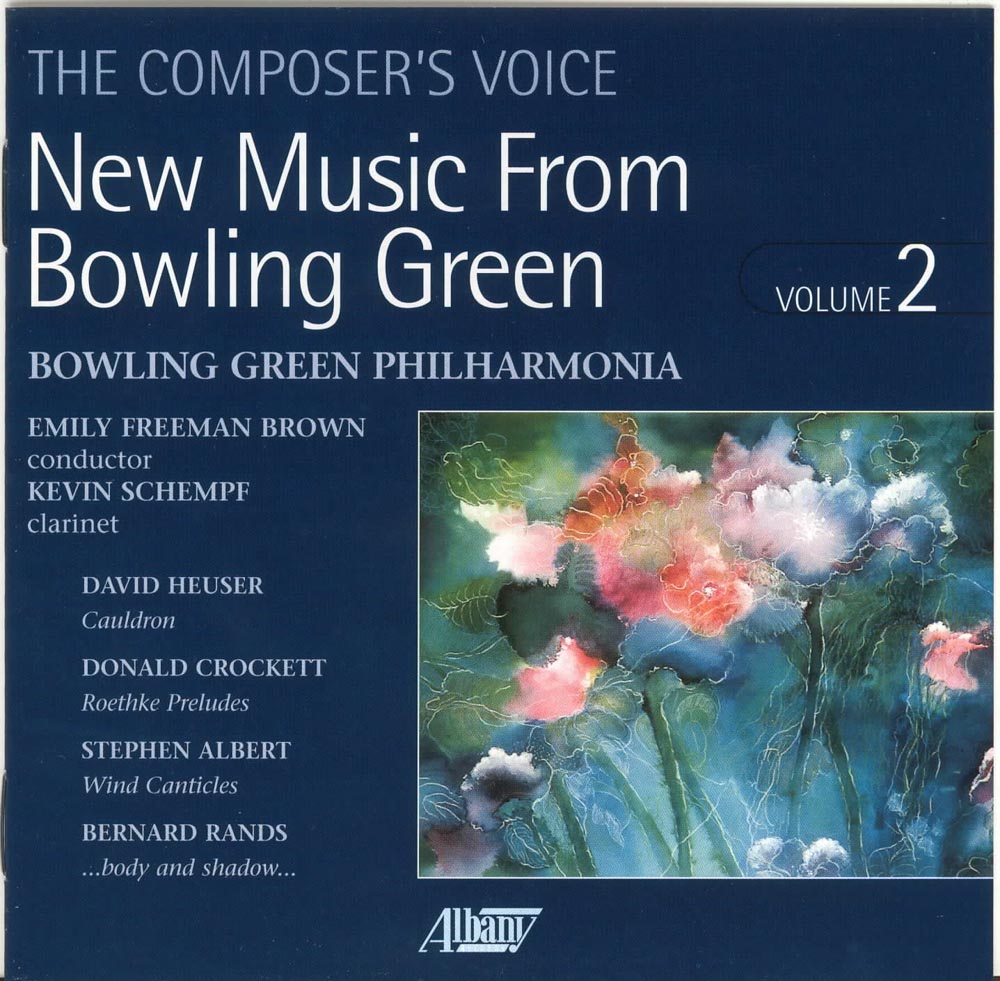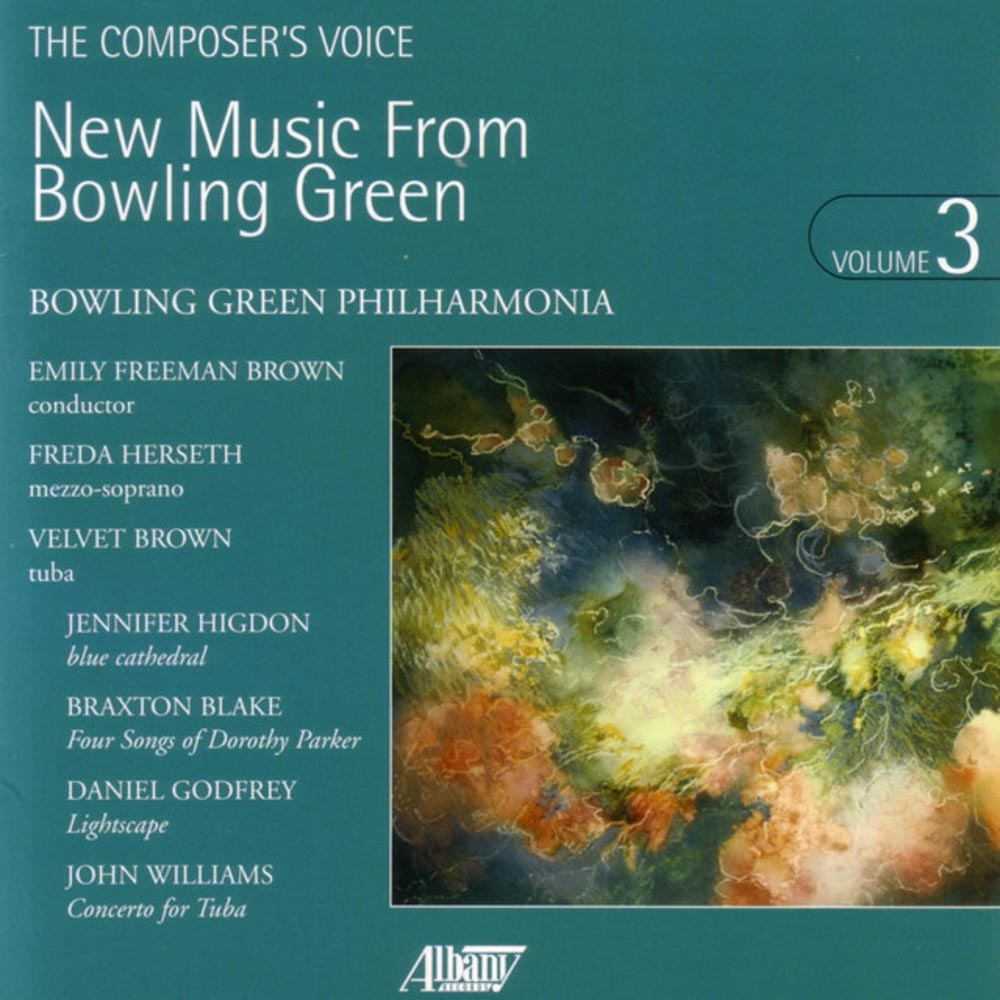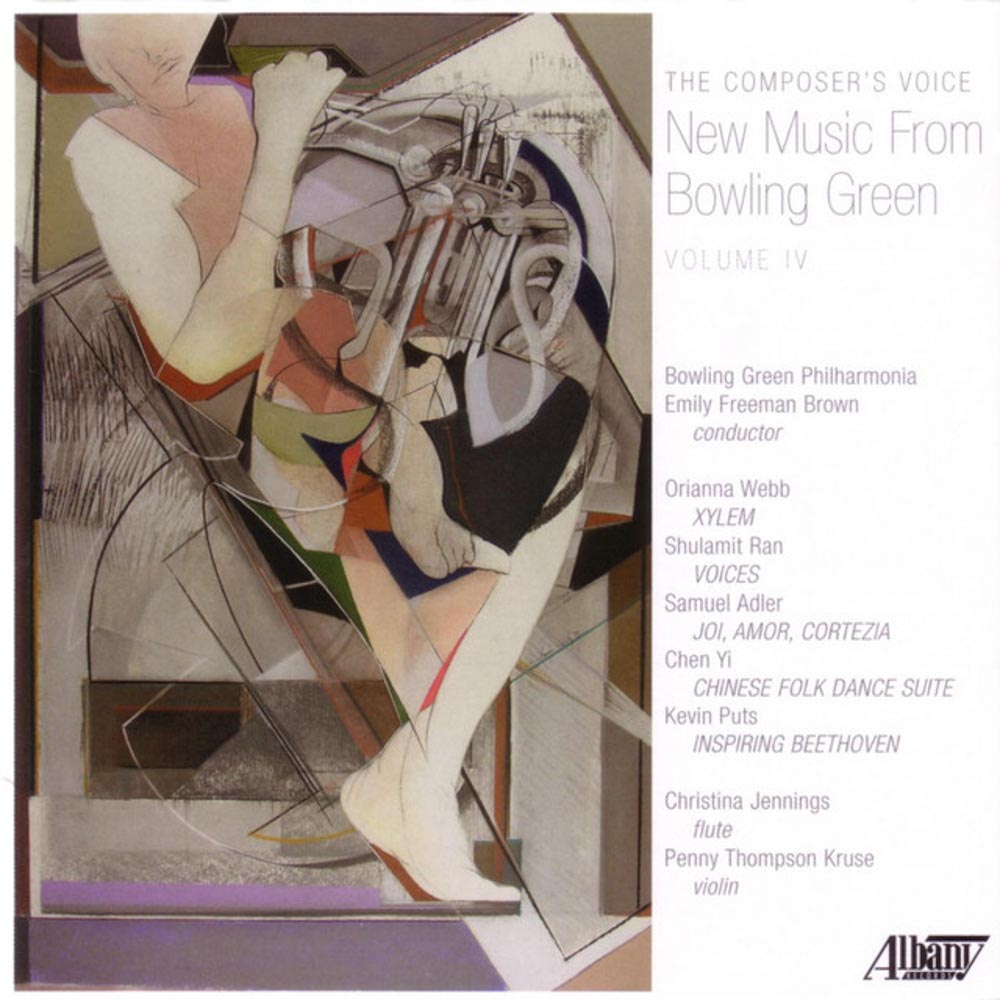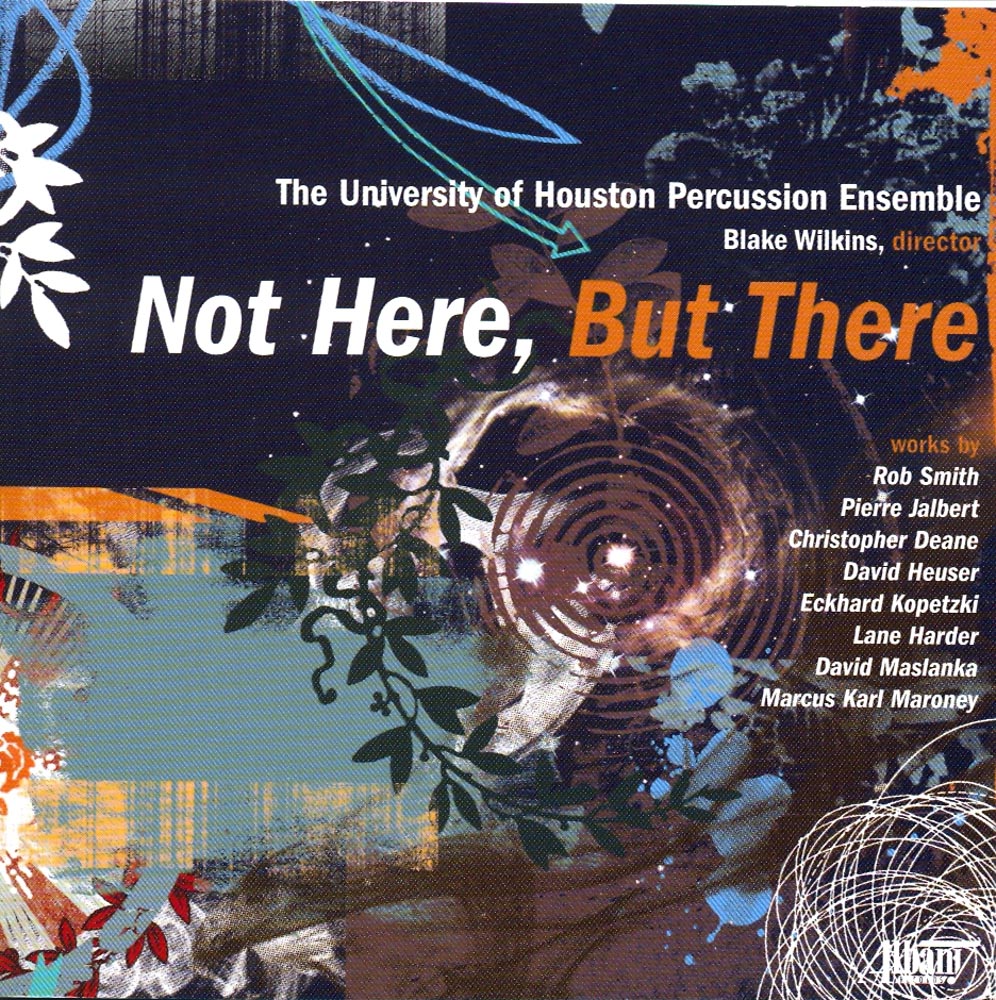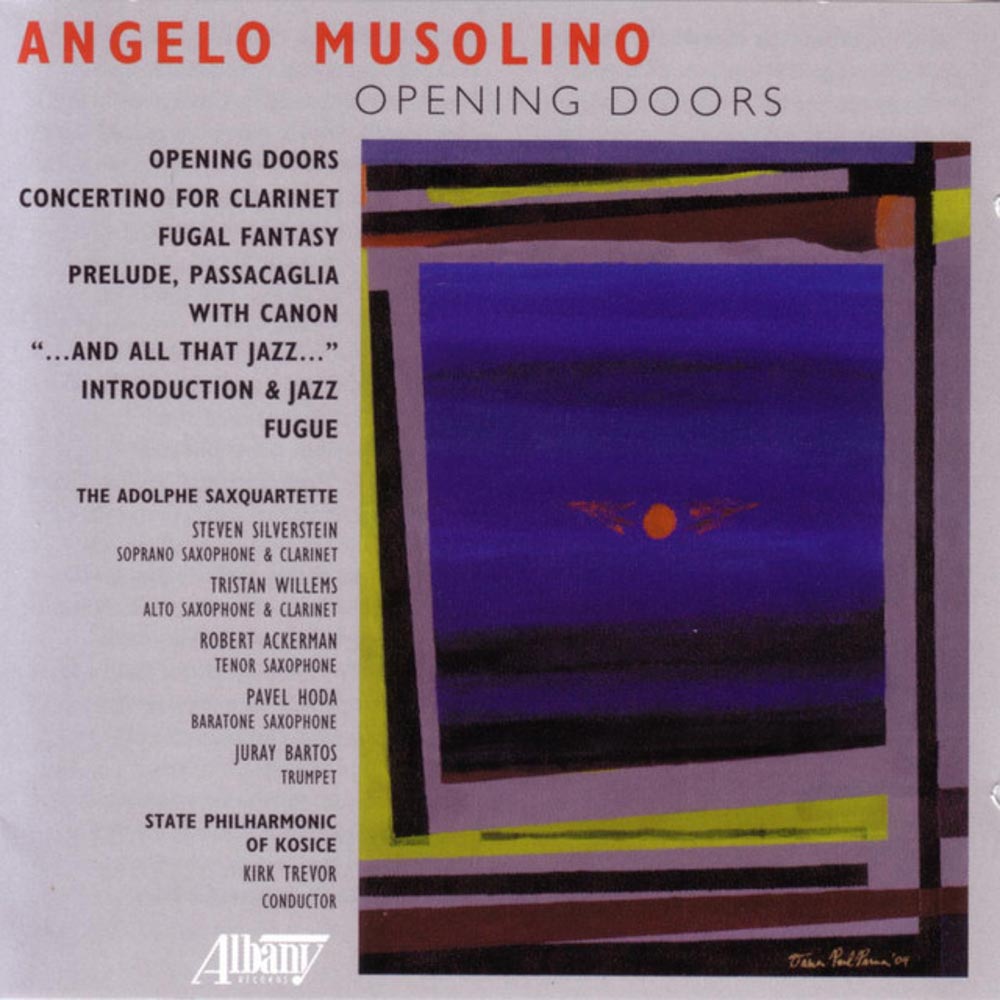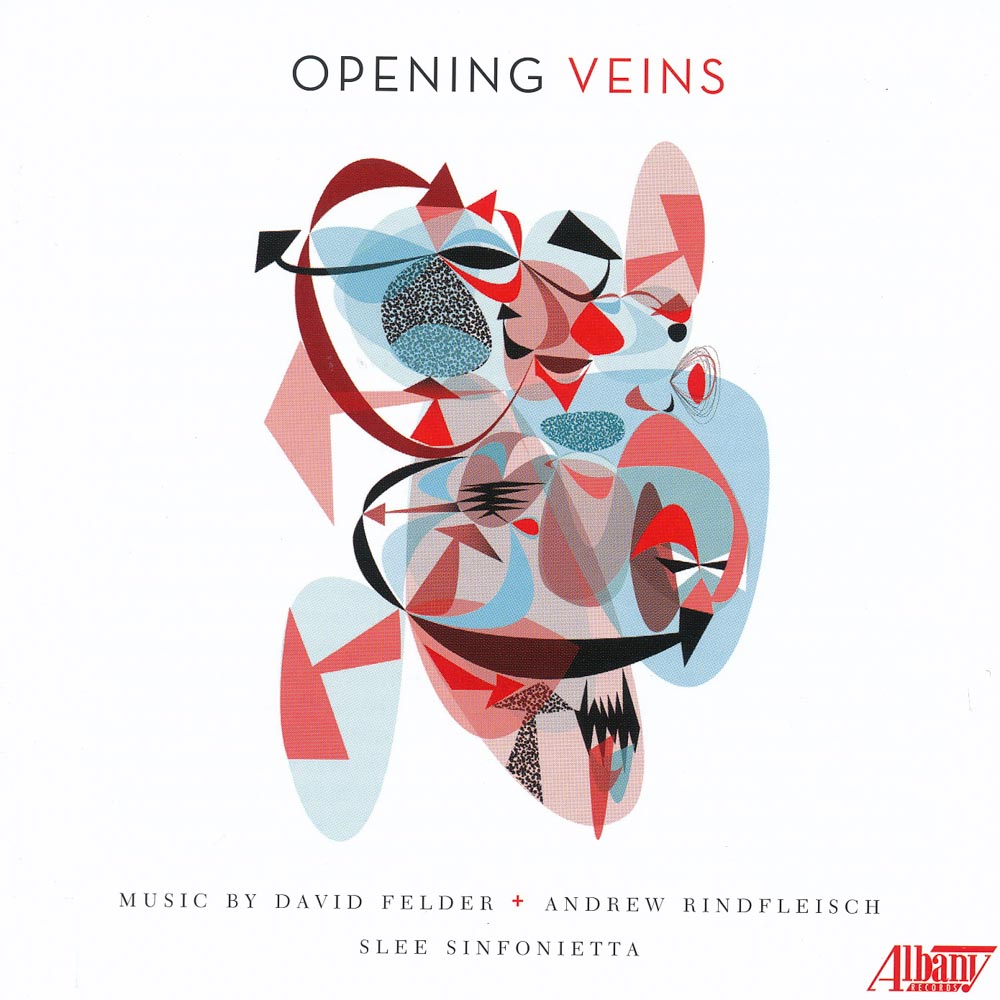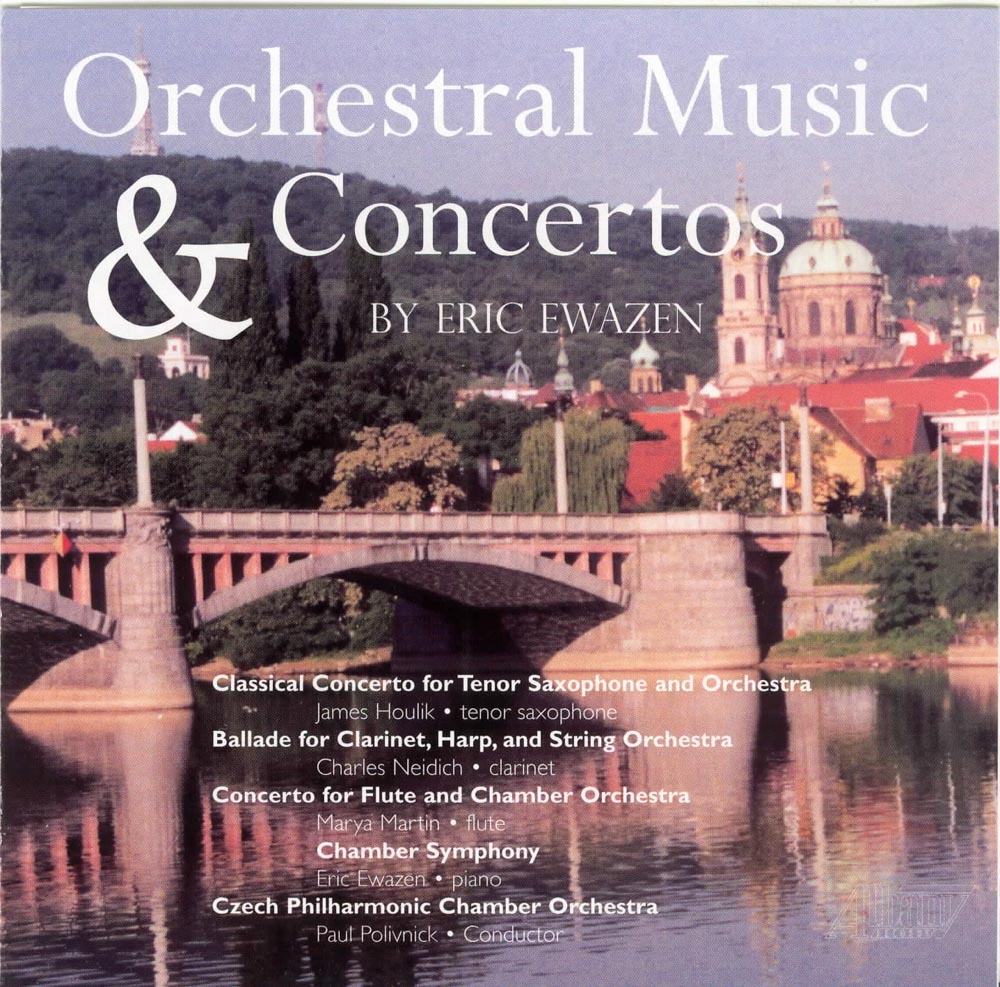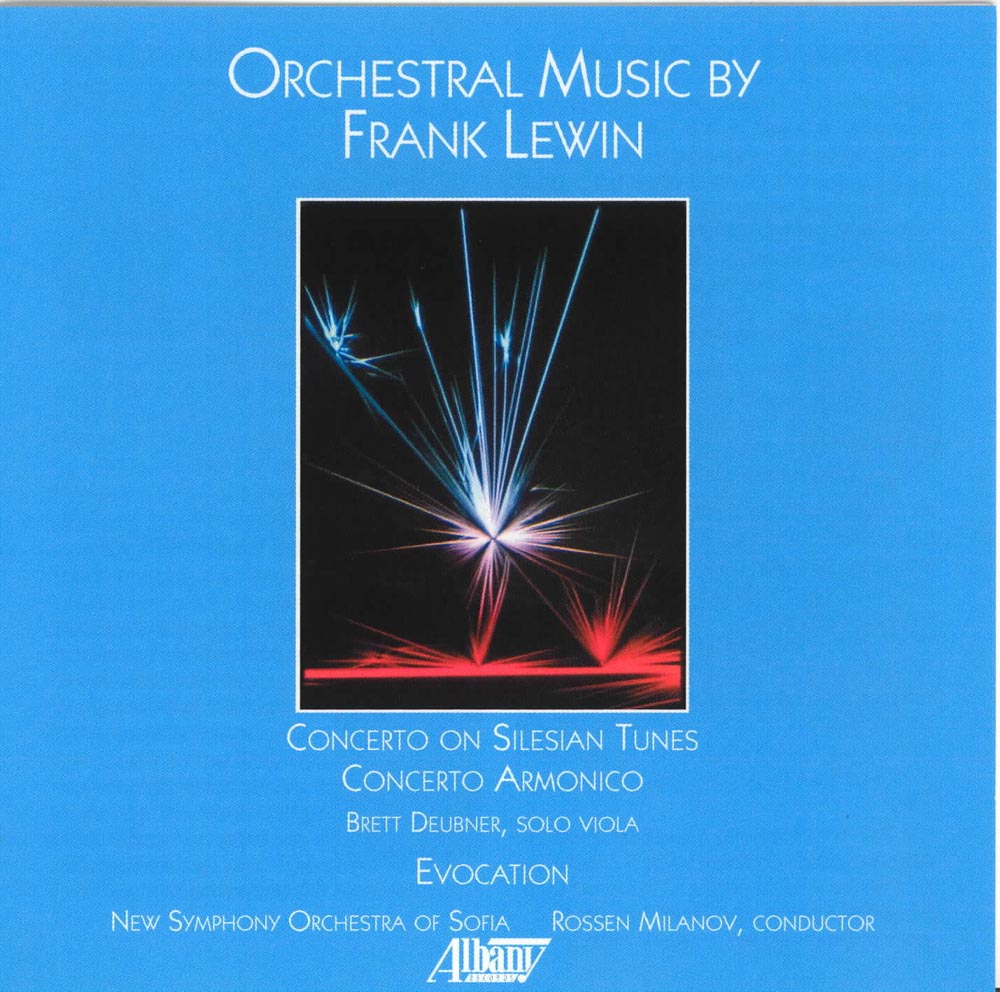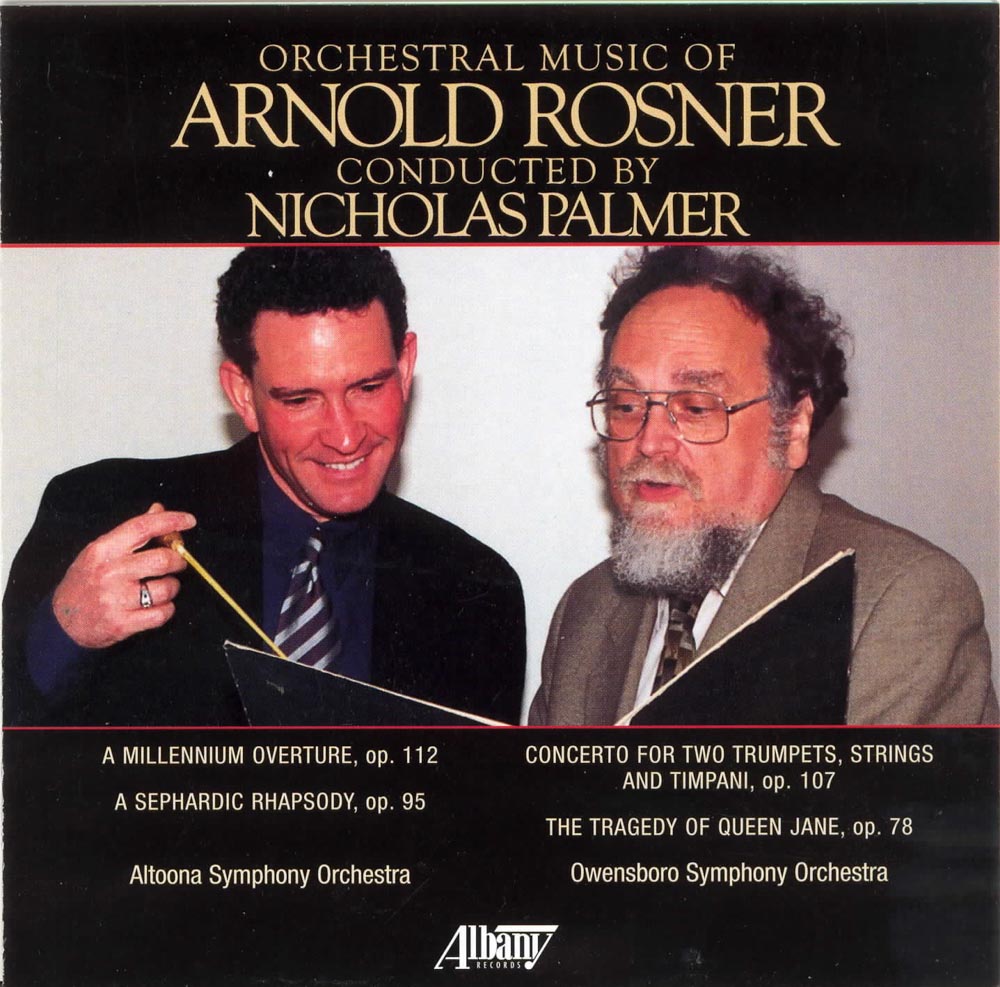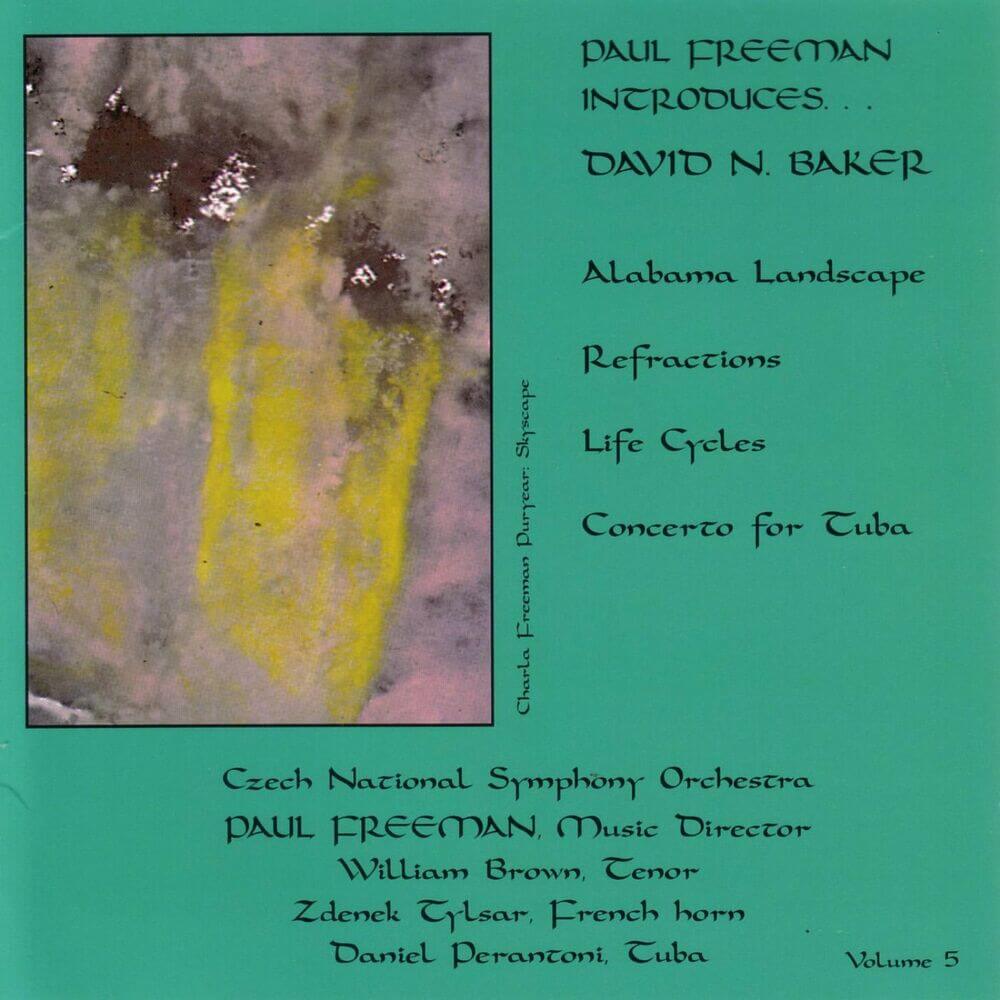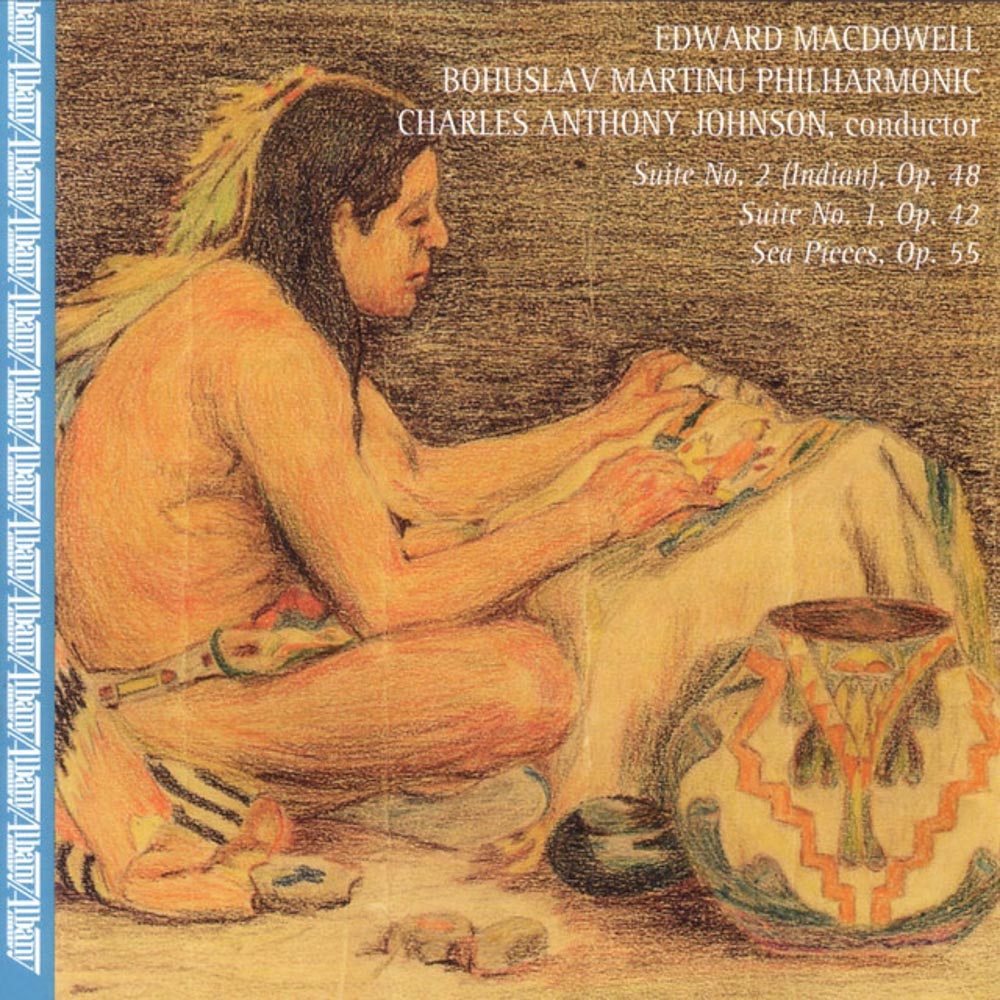Catalog #: TROY0397
Release Date: July 1, 2000OrchestralNational Public Radio has said of Pavlova's music: "In Pavlova's music you find a special quality of the Russian way of thinking. Let's say, it comes from the way of thinking found in Chekhov, Tchaikovsky, and Rachmaninoff." Alla Pavlova is a composer, pianist, and musicologist. Born in Russia, she received her Masters Degree at the Gnessin Academy of Music in Moscow in 1983. After graduation she lived in Sofia, Bulgaria for several years where she worked for the Union of Bulgarian Composers and the Bulgarian National Opera. She then moved to Moscow where she lived from 1986 to 1990, working for the Moscow (later, Russian) Musical Society Board as a senior consultant. In 1990 she immigrated to New York and became a member of New York Women Composers in 1991. She has a special interest in creating music for theater, dance, film and children.
Catalog #: TROY0355
Release Date: November 1, 1999OrchestralThe composer writes: "This recording is of particular significance for me for two reasons. First, it marks one of the many happy collaborations I have enjoyed with the composer-conductor Edwin London and, through him, with the fine musicians of the Cleveland Chamber Symphony. It also, in the selection of works, reflects an important, almost forty year friendship I cherish with Luciano Berio, my former teacher and early mentor. The premiere performance of Metalepsis II (1971) was conducted by Berio. Madrigali (after Monteverdi-Berio) composed in 1977 refers constantly to Berio's fine transcription of Monteverdi's Il Combattimento at the same time as it relates many aspects of his own original music to that of his Italian predecessor. Triple Concerto (1998) carries the dedication "to Luciano Berio with love and gratitude."
Catalog #: TROY0267
Release Date: November 1, 1997OrchestralIt is an honor for Albany Records to introduce you to the music of the disgracefully neglected American composer, Edward Collins. During the first part of the 20th century, when American music was struggling to find a distinctive voice and a place on concert programs, Chicago composers were blessed with a nurturing champion in the person of Frederick Stock, the second conductor of the Chicago Symphony Orchestra. Among the gifted musicians who would benefit from Stock's fatherly care was Edward Joseph Collins. Between 1924 and 1943 his music was often heard at Chicago Symphony concerts with the composer himself appearing as soloist in his piano concerti or as guest conductor of his various Orchestral compositions. He was born in Joliet, Illinois to Irish-American parents. The youngest of eight musically talented brothers and sisters, he was giving piano recitals at the age of nine and at 14 became a pupil of the renowned pianist Rudolph Ganz. When Ganz moved to Berlin, Collins accompanied him where he studied with Max Bruch and Engelbert Humperdinck. He made his European debut in 1912 and in the fall returned to America, touring on a double bill with the great soprano Ernestine Schumann-Heink (Collins's sister, Kate Hoffman, was Schumann-Heink's accompanist for 35 years). As a result of the tour, Collins was engaged as the assistant conductor of the Century Opera Company in New York. In 1914, he became an assistant conductor at the Bayreuth Festival in Germany. During World War I, Collins served as a Lieutenant for the 88th Division in France. He entertained troops not only by performing but also by composing an operetta "Who Can Tell?" which General Pershing and President Wilson attended on opening night. After the Armistice, he returned to the concert stage. In 1919 he joined the faculty of the Chicago Musical College. In 1933 he moved his studio to the American Conservatory of Music and remained on their faculty until his untimely death in 1951. It is wonderful that we have musicians of the caliber of Marin Alsop and her great Orchestra giving Edward Collins's music the attention it deserves. Here is the music of a wonderful composer.
Catalog #: TROY0625
Release Date: September 1, 2003OrchestralEdward Joseph Collins was born in Joliet, Illinois and was the youngest of nine children all of whom were musical. He studied first in Chicago with Rudolf Ganz and then in Berlin with Max Bruch and Engelbert Humperdinck, among others. He returned to the United States in the fall of 1912 and began to concertize. During 1913/14, he was appointed assistant conductor of the Century Opera Company in New York. In 1914, he traveled once again to Europe where he was engaged as an assistant conductor at the Bayreuth Festival, where his duties also included playing the timpani. In August 1914, the outbreak of hostilities in Europe necessitated his return to America. When the U.S. entered the War, he began as an infantry private, but soon rose to the rank of Lieutenant. When Collins returned to Chicago, he resumed his performing career and married a young voice student named Frieda Mayer whose father was Oscar Mayer, the owner of the Chicago Meat Packing Company that bears his name. Erik Eriksson, Collins' biographer has written: "The music of Edward Joseph Collins deserves closer attention and more frequent performance. Collins was highly original in his organization and employment of ideas, in the flow with which they were assembled, and in the unforced introduction of American idioms to works that were conceived with great seriousness of purpose. With strength of character and courage that must be admired, Collins composed music that also exhibits an endearing capacity to convey genuine and enduring emotion." See also TROY267 for more of Collin's music.
Catalog #: TROY0630
Release Date: October 1, 2003OrchestralThis is the third release on Albany Records of the music of Edward Collins. (Irish Rhapsody) from 1929, is the fullest realization of Collins's thoughts on the Irish folksong "O! The Taters they are small over here!" a tune he used in several compositions between 1927 and 1932. In Hibernia, the composer's imagination, his gift for orchestral tone painting and his ability to establish a reflective mood are lovingly in evidence. No doubt Collins's Irish heritage manifested itself, permeating the nineteen-minute work with an atmospheric mixture of gaiety and wistful melancholy. While it reflects all the technical facility Collins had gained from his musical training, it is the antithesis of an academic piece. It is scored for a large orchestra. Considering Collins's training in composition and success as a concert pianist, his urge early on to tackle a piano concerto was not surprising. Ultimately, Collins wrote three concerti, manifesting growing assurance as a composer with numbers two and three. The first, which William Wolfram describes as a "pastoral" work, came before stylistic influences had jelled into something more personal. The first performance took place in December, 1924 under Frederick Stock and the Chicago Symphony Orchestra with the composer as soloist. On November 18, 1940, Collins reminisced in his journal somewhat enviously about his friend Alfred Wallenstein. Once a section cellist in the Chicago Symphony, "Wally" was invited by Toscanini to audition for the solo cello position with the New York Philharmonic. Collins wistfully remarks that his friend "took the job and shook the dust of Chicago from his shoes." Collins went on to note that Wallenstein later became music director of New York City's WOR radio station and then conductor of several concerts immediately following the Toscanini series. In the same journal entry, Collins wrote: "Wally asked me to make some arrangements for him and I intend to begin with 'Li'l David." The work heard on this recording was completed in 1940. Submitted by Collins in response to a Chicago Symphony Orchestra commission on the occasion of its Golden Jubilee, Lament and Jig was the sixth of a set of twelve variations written by a dozen different composers under the collective title, Variations on an American Folk-Song. Other composers included Leo Sowerby, John Alden Carpenter and Rudolf Ganz. The theme was "El-A-Noy, an Illinois pioneer recruitment song, perhaps selected by Frederick Stock who conducted the premiere on April 17, 1941.
Catalog #: TROY0657
Release Date: May 1, 2004OrchestralIn his journal of November 7, 1939, Collins briefly notes that he is working on the score of the Ballet-Suite: The Masque of the Red Death. It was not completed until almost fifteen months later, and during that period, Collins often reflected in his journal about death. The passing of a favorite sister prompted him to question the nature of individual mortality. The Ballet-Suite was completed on January 29, 1940. Collins was not entirely pleased with it. In his journal he wrote: "Finished the 'Masque' at five-o-clock. I was terribly sick of it at the end, but I just had to finish it and I fear the Invocation Profane suffered, as it was the final fragment in the order of composition." Submitted as an entry for a competition sponsored by the Saint Louis Symphony Orchestra, Masque also caused its composer some other discomfort. He worried about the reaction of his former teacher and friend Rudolf Ganz. Two days after the completion, he was more positive, noting in his journal that "I wrote the Masque faster than anything in my life". Despite the composer's caveats, the lurid drama of Red Death prompted a vivid score, before which Collins included his synopsis of the story by Edgar Allen Poe (which is included in the program booklet). This CD likely contains the first of several orchestral and piano solo variations on the Irish "potato famine" folksong, O! The Taters they are small over here! On May 21, 1927, Collins's entry in his journal reads, "Only ten more days to complete the 'Irish Rhapsody'. The college orchestra will have difficult time learning the piece by the 20th of June." Students of the Chicago Musical College performed the premiere, conducted by Collins, then a member of the college's faculty. Collins mentions his Set of Four in two journal entries, referring to an Illinois competition that likely involved the Chicago Symphony Orchestra and its conductor Frederick Stock. "May 28, 1925 One day nearer to catastrophe. After hearing the rehearsal this morning I am certain my Set of Four has no chance in Evanston. Lord help me! I am discouraged today and don't know exactly what to do." Despite the competition results, these four short orchestral pieces are typically well-crafted and full of atmosphere.
Catalog #: TROY0742
Release Date: March 1, 2005OrchestralThe conductor James Freeman writes: "When a young composer named Gerald Levinson applied for a position in Swarthmore College's Music Department (of which I was then acting chair) more than 20 years ago, I was struck by an extraordinarily luminous, beautifully written piece called in dark which he had included in his portfolio. That piece and several others in the same folder showed so much imagination, feeling for color, and downright compositional skill that I had no doubt this was the composer we were looking for. A heartfelt and passionate letter from Olivier Messiaen only added to my departmental colleagues' and my own conviction that Levinson must be "the real thing." We were counting on the new person to teach the major part of our theory cycle, and young Levinson had absolutely no teaching experience of any kind. Nonetheless, we took a chance and hired him. Anyone who wrote such wonderful music had to be a great teacher and he was. When Orchestra 2001 was founded in 1988, it was the music of George Crumb (which is currently being recorded for Bridge) and Gerald Levinson that I especially wanted to bring to new audiences." The critic Paul Griffiths has written: "What must thrill anyone who comes in contact with Gerald Levinson's music is its sheer joy in sound, and the decisiveness with which it sings or dances its way through time.... In sympathy with sound, in sympathy with time, Levinson's music is close to the natural phenomena on which all music depends. Two things spring from this. One is that his music can easily evoke other natural phenomena: the sea, the stars, rugged landscapes. The other is that this music is in tune with other kinds of music from around the world. Levinson's resources are classical western: he writes for the symphony orchestra, for the piano, and for chamber groupings of conventional instruments. His disciplines, too, are those of the western tradition. But the east was present in his music even before his first trip there. His works, right through his career so far, exist on companionable terms with Mahler's music and with Bali's, with Ravel's and with Japan's, with Messiaen's and with India's, with Stravinsky's and with China's, with America's symphonic tradition and with Tibet's slow melody. Out of all this he is creating, piece by piece, a world of his own."
Catalog #: TROY0497
Release Date: December 1, 2001OrchestralHarold Farberman writes: "Unlike Volume One (Albany TROY402) which was entirely devoted to early chamber music, Volume Two contains music for orchestra. The musical agenda is different for each work: a film score, a song cycle, a short elegy for strings, a fable for children and a symphony for percussion and strings. Atonality and tonality, including a nod to the American "pop" culture of the 50s, are employed in contrasting structures and differing styles. Incisive rhythms and a full color palette remain a constant. The film, The Great American Cowboy won the Academy Award in 1973 for the best documentary. The film contained over sixty minutes of music for symphony orchestra. War Cry was a bicentennial commission from the Colorado Springs Symphony . It was premiered on November 11, 1976 by the orchestra. Elegy for String Orchestra was written in memory of my brother Leo and is dedicated to his memory. I conducted the premiere in Carnegie Hall on March 14, 1965. Tree Branch was premiered on March 7, 1998 by the Garden State Philharmonic. For a long time my colleagues have complained about the paucity of original works for children's concerts that include the conductor as the central figure. I searched for but could not find a suitable text until I looked at a branch of a tree and envisioned a baton. The rest, including the text, was easy. The intent of my Symphony was to unite the special sound qualities of a large percussion section with strings, and to acknowledge the role of percussion in our "pop" culture. The Symphony might be labeled a "cross-over" work and perhaps it is. Louie Bellson, Tito Puente, Jascha Heifetz and the Budapest Quartet shared my record shelf. However, the term "cross-over" was not yet in our vocabulary in 1957."
Catalog #: TROY0370
Release Date: June 1, 2000OrchestralIt is obvious that Albany Records thinks highly of the music of the late American composer Buddy Bazelon, for other of his compositions appear on TROY54, TROY01, TROY74, TROY82, and TROY63. The Symphony No. 6 was composed in 1969. It was commissioned to celebrate the 100th anniversary of the founding of the Temple B'nai Jehudah in Kansas City, Missouri. The symphony exploits the link between the circumstances of its commission and the music Bazelon had written for the 1968 Jules Dassin feature-film documentary on the Six-Day War, Survival 67. The first performance was given by the Kansas City Philharmonic in November, 1970. Overture to Shakespeare's Taming of the Shrew was composed in 1960. It is based on music written for a production of The Taming of the Shrew by the American Shakespeare Festival Theater in 1957. The Overture already bears the fingerprints of the mature Bazelon style in its colorful orchestration and clearly etched musical profiles. Shakespeare's characters spring off the page and engage the listener in this effervescent and effective musical portrait. The first performance of the work was given by the National Gallery Orchestra conducted by Richard Bales in May, 1964. The Short Symphony was composed in 1961. The numbering Bazelon used for his Symphonies shows that he regarded this as his second symphony. The Short Symphony makes a quantum leap in focusing orchestral forces to create the bristling rhythmic energy that marks all of the composer's later scores. The first performance of the work was given by the National Symphony Orchestra conducted by the composer in December 1962. If you enjoy a big, 20th century, American orchestral sound, then this is a disc you will enjoy.
Catalog #: TROY0054
Release Date: March 1, 1992OrchestralSince the death of the American composer Irwin Bazelon in August 1995, there has been a marked increase in interest in his music. Three of his most representative works are included on this recording. "Spires" was composed in 1981. It was not premiered however, until February 6, 1989 by the Orchestre National de Lille with Harold Farberman conducting. The work is not a formal concerto for trumpet and orchestra but rather an orchestral composition with a large solo trumpet part including a written jazz-scat section against orchestral forces. "Trajectories" for solo piano with orchestra was composed in 1985. In this concerto, it was the composer's intention to avoid some of the 19th century mannerisms of solo instrumental works with orchestra, and, in this context avoid the traditional confrontation between piano and orchestra. The listener will also hear that the composer has attempted to exclude extensive virtuoso octave passages for the piano and to eliminate rapid arpeggios up and down the piano keyboard. About his work "Legends and Love Letters" the composer writes: "I have selected five Imagist poems of Hart Crane (c. 1920) that reflect this esteemed American poet's lyricism and nostalgic sentiment. It was my intention to capture in my music these essential elements, in addition to the bold dramatic statements that represent the contrasting counterpoint inherent in Hart Crane's poetry. In these pieces, I conceived the soprano part as a narrator's voice, singing the poet's lines through a small ensemble background, but always maintaining a soloist's position of dominance. Hart Crane's eloquent lyrical voice is primary; it must be allowed to occupy center stage."
Catalog #: TROY0363
Release Date: January 1, 2000OrchestralBuddy Bazelon died on August 2, 1995 at the age of 73. He composed nine symphonies and more than 60 orchestral, chamber and instrumental pieces. Born in Evanston, Illinois, he graduated from DePaul University with degrees in music. He studied with Hindemith at Yale and Milhaud at Mills College. From 1948 until his death he lived in New York City and Long Island where he had a retreat which was the perfect counterpoint for the tensions and hustle-bustle of urban life with which his rhythmically complex and often jazz-tinged music bristles. In his early years in New York, Bazelon supported himself by scoring documentaries, art films and theatrical productions. During the 50s and the 60s he composed more than fifty scores of this kind, which proved to be an invaluable preparation for his orchestral music. In a valedictory of sorts he wrote Knowing the Score: Notes on Film Music. Published in 1975, this book is widely used as a college text. As guest composer Bazelon frequently lectured at leading universities and music schools throughout the United States and England. Young people were especially drawn to his feisty spirit and no-nonsense approach to earning a living by applying compositional talents to the commercial world without sacrificing integrity. A long-time racing enthusiast, one of his best known works, Churchill Downs (Chamber Concerto No. 2) is named for the home of the Kentucky Derby.
Catalog #: TROY0835
Release Date: May 1, 2006OrchestralWe've been proud over the past several years to offer the chamber and orchestral music of James Yannatos on Albany Records, and this newest release offers an excellent sampling of his talents. Born and educated in New York City, he studied with Philip Bezanson, Nadia Boulanger, Luigi Dallapiccola, Darius Milhaud and Paul Hindemith. He also studied conducting with William Steinberg and Leonard Bernstein, and has been music director of the Harvard-Radcliffe Orchestra since 1964. The Violin Concerto was commissioned by the Pierian Foundation in honor of his 40th year at Harvard. The Symphony, loosely based on a twelve-tone theme, was influenced, as Yannatos says, "by the ragged, edgy rhythms of jazz filtered through the ears of a classical composer." The Contrabass Concerto is described as "a cross between the classical solo concerto, with its typical virtuoso technique, and the alternating 'ritornello' style of the Baroque solo concerto." Yannatos' music is exciting and colorful with a particularly "transparent" sound to the orchestration. The other releases of his chamber, choral and orchestral works can be heard on TROY241, 278, 366, 400, 516 and 638.
Catalog #: TROY0876
Release Date: October 1, 2006OrchestralTibor Serly will always be associated with Bela Bartok. It was Serly, after all, who gets credit for completing the older composer's Piano Concerto No. 3 and virtually composing the Viola Concerto based on Bartok's outlines and editorial decisions. But Serly, who was born in Hungary and died in London, was a composer of intriguing talent, an excellent violist, violinist and conductor, a musical theorist and was sought-out by students as a teacher. A pupil of Zoltan Kodaly, Leo Weiner and Jeno Hubay, he would eventually play as both violist and violinist in the Cincinnati Symphony under Reiner, the Philadelphia Orchestra under Stokowski and later in the NBC Symphony under Toscanini. His music is in the robust, harmonically spiky tradition we associate with 20th Hungarian composers. Of particular interest is the Concertino 3X3 (pronounced "3 times 3"). As the composer explained: "Concertino 3X3 is at once a Concertino for Solo Piano in three movements; it is also a Concertino for Orchestra, alone; but when played together simultaneously, it is converted into a Concertino for Solo Piano and Orchestra. Thus, in actual performance, one hears three different compositions." This is all fascinating, vital music, and this new release from the enterprising Paul Freeman will allow everyone to appreciate the freshness of Tibor Serly's voice.
Catalog #: TROY0347
Release Date: March 1, 2000OrchestralDruckman's The Sound of Time started out as a piece for soprano and piano which was premiered in 1964. This chamber version was first heard in 1965 and lasts about 12 minutes. It is a setting of texts from Deaths for the Ladies (and other Disasters) by Norman Mailer. Augusta Read Thomas' Spirit Musings for Violin and Orchestra was composed in 1997 and is actually a version of her Van Straaten Concerto No. 1 for flute and chamber orchestra. The version of the piece recorded here is the first performance in the new form. John Musto was born in Brooklyn and received his earliest musical training from his father, a jazz guitarist. Self taught as a composer, he studied piano with Seymour Lipkin and Paul Jacobs. His piece Encounters was premiered by the Cleveland Chamber Symphony on September 21 and 22, 1992. Jeffrey Jacob was educated at Juilliard and the Peabody Conservatory and he also studied at the Salzburg Mozarteum. His piece The Persistence of Memory here receives its premiere performance and recording.
Catalog #: TROY1020
Release Date: May 1, 2008OrchestralFrom the well-known (Ran, Adler, Daugherty) to the less well-known (Bryant, Ruo, Ross), this series continues to offer music of distinction and variety with comments by each of the composers preceding the actual performance. The works evoke programmatic concepts, particularly Shulamit Ran's Vessels of Courage and Hope, inspired by the tragic story of the voyage of the SS. President Warfield (Exodus 1947) during World War II. The ship carried Jewish Holocaust refugees who were refused permission to land in Palestine and were forcibly returned to Germany.
Catalog #: TROY1214
Release Date: September 1, 2010OrchestralThe Bowling Green Philharmonia offers another fascinating mix of new music in this sixth volume of the series. Ranging from the young Avner Dorman's Variations Without a Theme for Large Orchestra to the even younger Raymond Lustig's Unstuck to 103-year-old Elliott Carter's Pastoral for English Horn and Strings with works by Marilyn Shrude and Steven Stucky occupying the generations in-between, the recording gives the listener an opportunity to hear fine music in excellent performances.
Catalog #: TROY1654
Release Date: February 1, 2017OrchestralThe seventh volume in the New Music From Bowling Green features works by Chinese composers Shen Yiwen and Xiaogang Ye; German composer Martin Herchenröder and American composers Braxton Blake and Ingram Marshall. The music includes music for orchestra (First Orchestral Essay and Winter 1; concertos (Concerto for Two Guitars and Concerto for Clarinet); and a work for orchestra and tape (Bright Kingdoms). As with all the recordings in this series, the composers have recorded their thoughts about their works.
Catalog #: TROY1884
Release Date: December 1, 2021OrchestralThe eighth volume of New Music from Bowling Green includes orchestral compositions by Aaron Jay Kernis, Marilyn Shrude, Richard Cornell, Dalit Warshaw, Martin Kennedy, and David Liptak. Conductor Emily Freeman Brown has been the driving force behind this series, which now has recorded more than 40 works by American composers. Brown has appeared as conductor with orchestras in the U.S., Europe, Asia, and South America. In addition to her work for Albany Records, she has recorded for Naxos, Linn, and Opus One Records. Soloists include violinist Ioana Galu, a native of Romania and now on the faculty at the University of South Dakota, and trombonist Brittany Lasch, who is on the faculty at Bowling Green State University.
Catalog #: TROY1947
Release Date: November 1, 2023OrchestralThe Bowling Green Philharmonia continues its unique approach of having composers speak about their compositions. This ninth volume in the series includes works by Mikel Kuehn, Shulamit Ran, Gabriela Frank, Louis Karchin, and Augusta Read Thomas. Conductor Emily Freeman Brown has spearheaded this important series that includes works written for the Bowling Green Philharmonia. A graduate of Eastman, Brown has appeared as a conductor with orchestras in the U.S., Europe, Asia, and South America. Her recordings appear on the Naxos, Linn, and Opus One as well as Albany Records.
Catalog #: TROY0490
Release Date: April 1, 2002OrchestralDavid Heuser's degrees are from Eastman and Indiana University and his composition teachers have included Samuel Adler, Joseph Schwantner and Warren Benson. A native of New Jersey, Mr. Heuser currently resides in San Antonio, where he is a faculty member at the University of Texas at San Antonio. Cauldron was commissioned and premiered by the New York Youth Symphony. Donald Crockett was born in Pasadena, California. He is Professor of Composition and Director of the Contemporary Music Ensemble at the University of Southern California Thornton School of Music where he joined the faculty in 1981. From 1991-1997 he was composer-in-residence with the Los Angeles Chamber Orchestra. Roethke Preludes was commissioned by the Los Angeles Chamber Orchestra and given its premiere performances in February 1995. It comprises six short movements, with the entire piece taking a little over a quarter of an hour. Pulitzer Prize and Grammy award-winning composer Stephen Albert, whose tragic death in 1992 stunned the music world, was recognized in his lifetime for a body of work at once powerful, dramatic, colorful and deeply emotive. He won the 1985 Pulitzer Prize for his symphony River Run and from 1985 to 1988 served as composer-in-residence with the Seattle Symphony. Albert's gift for writing vocal music is also reflected in his last concerto, the sweetly lyrical Wind Canticle for clarinet and orchestra, tailor-made for soloist David Shifrin and the Philadelphia Orchestra. Bernard Rands is considered one of the world's most renowned composers. He has been acclaimed as a major figure in contemporary music with more than 90 works for a wide range of genres, including large choral and symphonic compositions, chamber music and music theater pieces. ...body and shadow... was composed in 1988 in response to a commission from the Boston Symphony Orchestra and was first performed by that orchestra in 1989 under Seiji Ozawa. It is, in effect, a concerto for orchestra in that over the course of the work's two movements, each section of the orchestra is featured.
Catalog #: TROY0633
Release Date: March 1, 2004OrchestralAbout her piece blue cathedral Jennifer Higdon writes: "Blue...like the sky. Where all possibilities soar. Cathedrals...a place of thought, growth, spiritual expression...serving as a symbolic doorway into and out of this world. Cathedrals represent a place of beginnings, endings, solitude, fellowship, contemplation, knowledge and growth. These were my thoughts when the Curtis Institute of Music (where she teaches) commissioned me to write a work to commemorate its 75th anniversary. Curtis is a house of knowledge - a place to reach towards that beautiful expression of the soul which comes through music. Coming to the writing of this piece at a unique juncture in my life, I found myself pondering the question of what makes a life. The recent loss of my younger brother, Andrew Blue, made me reflect on the amazing journeys that we all make, especially at Curtis, where the pursuit of "the singing soul" is what music and life are all about. This piece represents the expression of the individual and the whole of the group...our journeys and the places our souls carry us." Braxton Blake studied composition with Samuel Adler, Warren Benson and Joseph Schwantner at Eastman, where he also served as director of the school's Musica Nova ensemble. He has also studied at the Bayreuth Festival, the Dartington Festival and the Staatliche Musikhochschule in Stuttgart, Germany. "In composing these songs, I decided to mirror the directness of Dorothy Parker's poetry in my music. I enjoy composing in a variety of styles, and it seemed appropriate to borrow just a bit from Parker's era, as will be immediately clear to the listener. These songs are cabaret songs - though not specifically meant for a cabaret. Like many cabaret songs, they are narrative scenes, all with contrasting music." Daniel S. Godfrey earned bachelor's and master's degrees in composition from Yale University and a Ph.D from the University of Iowa. He is professor of music in the Setnor School of Music at Syracuse University and has held visiting faculty appointments at the Indiana University School of Music, the Eastman School of Music and the University of Pittsburgh. "Lightscape was commissioned for and premiered by the Syracuse Symphony Orchestra in 1997. The idea of light in this work is abstract, having as much to do with 'inner' as outer light. The concluding measures, however, do have an external source: the deep glow and fade of sunsets among the islands of the mid-coast Maine. The high-point of the piece reflects a line in the Rig Veda (with which the score is inscribed): "May we soar like birds, far beyond the sun, blazing with Thy light." About his Tuba Concerto John Williams writes: "I really don't know why I wrote it - just urge and instinct. I've always liked the tuba and even used to play it a little. I wrote a big tuba solo for a Dick Van Dyke movie called Fitzwilly and ever since I've kept composing for it - it's such an agile instrument, like a huge cornet. I've also put passages in for some of my pets in the orchestra - solos for the flute and English horn, for the horn quartet and a trio of trumpets. It's light and tuneful and I hope it has enough events in it to make it fun."
Catalog #: TROY0743
Release Date: May 1, 2005OrchestralXylem is a short, energetic piece that amplifies a microscopic world, creating perpetual motion punctuated by explosive bursts. It takes its name from the tissue made of long tubular open-ended cells that conducts water from the soil up to the various parts of plants. Orianna Webb currently teaches composition at the Cleveland Institute of Music where she is a founding director of the Young Composers Program. Shulamit Ran writes: "My having been commissioned by the National Flute Association for a flute concerto in celebration of that organization's year 2000 convention was, for me, a much-relished opportunity to further explore the direction I found myself pursuing in earlier works." The work was premiered on August 19, 2000, with Patricia Spencer, flutist, and Ransom Wilson, conductor. Samuel Adler writes: "Nostalgia plays a role in the creation of many works of art. This was certainly the case in my writing this particular orchestral work that was composed for the Texas Little Symphony and John Giordano in the summer of 1982. For a long time now, I have had a love affair with Texas and also with music of the rather distant past. The resulting work was one which I had wanted to do for many years, namely, a dance suite based on Medieval, Renaissance and Baroque themes. These dances are treated as recompositions rather than arrangements. While the actual tunes in most of them are from a bygone era, the compositional techniques employed are of the 20th century and result in a metamorphosis of the old material. In other words, it is as if a contemporary composer took a journey into the past, fell in love with seven dance forms, brought them back to our century and rewrote them for he felt they still give off the same charm, excitement and contemporaneousness which they did when they were originally conceived." Chen Yi is currently the Cravens/Millsap/Missouri Distinguished Professor at the University of Missouri-Kansas City. She received her bachelor's and master's degrees in music composition from the Central Conservatory in Beijing, and a doctorate from Columbia University. Her composition teachers include Chou, Davidovsky, Wu and Goehr. She has served as composer-in-residence for the Women's Philharmonic, the vocal ensemble Chanticleer and the Aptos Creative Arts Center (1993-1996) supported by Meet the Composer. Kevin Puts's Inspiring Beethoven was commissioned by the Phoenix Symphony, Hermann Michael, conductor, for their Beethoven Festival in January 2002. The work is a musical tale of Beethoven transcending the grim realities of his life and finding the inspiration to compose the joyous first movement of his Symphony No. 7. Puts has received degrees from the Eastman and Yale University Schools of Music, and currently serves as assistant professor of composition at the University of Texas at Austin.
Catalog #: TROY1623
Release Date: April 1, 2016OrchestralConductor Mark Mandarano and the Sinfonietta of Riverdale offer live performances of American music recorded at their annual series of concerts. The program ranges from America's past to present with luminaries from the past (Walter Piston) to the present time with three generations represented by John Corigliano, Ellen Taaffe Zwilich, Byron Adams, and Oliver Caplan. A survey that shows us where we have been, where we are, and where we are headed. The Sinfonietta's reputation for fine musicianship and stimulating programming has been recognized by the public and the press. The ensemble has performed the music of world-renowned composers and has a history of commissioned works, one of which (Lunastella) is offered on this recording. Founded in 2008 by artistic director and conductor Mark Mandarano, the Sinfonietta's recordings also appear on the Arabesque label. In addition to the Sinfonietta, Mandarano has served as principal guest conductor of the Moscow Chamber Orchestra and has led performances of the Los Angeles Philharmonic, Houston Symphony, New Jersey Symphony, and Nürnberger Symphoniker, among others. He is a graduate of Cornell and the Peabody Conservatory music and is director of instrumental music at Macalaster College.
Catalog #: TROY1076
Release Date: January 1, 2009OrchestralThe Moores School (University of Houston) Percussion Ensemble was established in 1997 and is directed by Blake Wilkins. The Ensemble's selection as a Winner in the 2003 Percussive Arts Society Percussion Ensemble Competition and is appearance at the International Convention established its reputation as a leader in percussion performance. The Ensemble was again selected as a Winner for 2006. Under Wilkin's leadership, the Ensemble has emerged as a leader in the promotion and performance of new music. In 2002 a commissioning series was begun to encourage new works for the medium. Since the inception of this project, the Ensemble has commissioned six composers, some of whose works are heard on this recording -- the second made by the Ensemble for Albany Records.
Catalog #: TROY1713
Release Date: March 1, 2018OrchestralA collaboration of East and West, Ode To Nature contains a Blu-Ray disc of the performance along with an audio cd. The story is of Blossom, a beautiful and talented young woman with a boundless future. Her artistic gift was dancing and playing the Chinese single-string lute. At age 17, bone cancer struck and Blossom's life was saved by an ampuation. Life that was so promising now is left with only despair. Ode To Nature is about the transformation of the human spirit. It is about Blossom's power over life achieved by combining the five Chinese virtues (righteousness, order, benevolence, wisdom, trust) and the five elements (metal, wood, water, fire, earth). It is her journey to find light admidst darkness and to gain victory from defeat.
Catalog #: TROY0708
Release Date: December 1, 2004OrchestralAngelo Musolino has been an educator for more than 40 years, both as private instructor and as a college professor at the Brooklyn Conservatory of Music, Empire State College and Adelphi University where he directs the Pop Ensemble for which he still writes music.
Catalog #: TROY1434
Release Date: August 1, 2013OrchestralThe music by David Felder and Andrew Rindfleisch on this disc couldn't be more different in concept or atmosphere. What these artful composers share is an abiding curiosity for aural imageryhow color both of instrumental and electronic persuasion melds with programmatic ideas to produce compelling, challenging and forceful narratives. Felder and Rindfleisch have spent their careers delving into the unknown while retaining connections with the near and distant pasts. The influences in the scores performed here are numerous, with nods to jazz and myriad 20th-century techniques. But most important is the way each piece inhabits a distinctive sonic world through novel performing forces that open up the expressive potential of the topics at hand. In revealing the salient qualities in each score, the music making of the Slee Sinfonietta tells us much about the complementary creativity of Felder and Rindfleisch even as it renders the pairing of these composers something on the order of ideal.
Catalog #: TROY0477
Release Date: February 1, 2002OrchestralCurrently one of America's finest composers (and one of the most popular in the Albany Records catalog), Eric Ewazen is on the faculty of Juilliard. About the music on this CD, Ewazen writes: "In 1992, James Houlik came over to my Manhattan apartment to show me what he could do on the tenor saxophone. His spectacular playing caused unbelievable comment from my neighbors and I was hooked on his beautiful, intense tone. His abilities at playing the most exciting and virtuosic repertoire and his total command of all ranges and means of expression inspired me to write a work showcasing his amazing talents. My Ballade was composed for my friend Jean Kopperud in 1986, who presented the work at Merkin Hall in New York City. It was written while I was guest composer at the Tidewater Music Festival in Southern Maryland. Outside my guest cottage was the beautiful Chesapeake Bay. In the balmy summer weather, with the water gently lapping the shore, I wanted to describe this unbelievably pastoral scene with music. This was the birth of the Ballade. My Flute Concerto was written in 1988 for Julius Baker, the legendary flute player of the New York Philharmonic. He premiered the work in 1989 in Merkin Hall in New York City. My Chamber Symphony was composed in 1985 for the Fairfield Chamber Orchestra, conducted by Thomas Crawford, who commissioned the work. The wonderful pianist Margaret Mills, first played the prominent piano part (played by the composer on this CD). The piano takes the role of the harpsichord in Baroque orchestral music."
Catalog #: TROY0983
Release Date: December 1, 2007OrchestralBorn in Breslau (now Wroclaw), Silesia, Frank Lewin emmigrated to the United States in 1940. His easily recognizable lean and spare instrumental style has been showcased on several Albany releases in recent years; the 2-CD set of film music (TROY866/67) gave a good indication of his work for various ensembles. This is the first release of his purely orchestral work. The Concerto on Silesian Themes is born of material that is obviously close to the composer's heart and mind. The Concerto Armonico has an interesting history: originally composed for the harmonica of the late John Sebastian, the work was never performed. Then it was revised for the present viola soloist, Brett Deubner. The final work was written for the tenth anniversary of the Princeton Symphony Orchestra in 1960.
Catalog #: TROY0548
Release Date: November 1, 2002OrchestralArnold Rosner is a prolific American composer whose music has been performed in the United States and Israel. His works exceed 100 in number and steer clear, generally, of both the post-serial avant-garde movement of the 1960's and the minimalist movement which followed it. His treatment of harmony and counterpoint, along with the occasional recourse to an ethnic, Middle Eastern flavor, places his music in the esthetic milieu of Paul Hindemith, Ernest Bloch, and Alan Hovhaness. Rosner is currently on the faculty of Kingsborough Community College of the City University of New York, where he teaches both standard and ethnic music. Having composed since the age of nine, he received advanced degrees from the State University of New York at Buffalo while studying with Leo Smit, Allen Sapp, Henri Pousseur and Lejaren Hiller, from all of whom, in his own words, "I learned practically nothing."
Catalog #: TROY0377
Release Date: April 1, 2000OrchestralDavid Baker is a native of Indianapolis and currently holds the position of Distinguished Professor of Music and Chairman of the Jazz Department at the Indiana University School of Music in Bloomington. A virtuosic performer on multiple instruments and top in his field in several disciplines, Mr. Baker has taught and performed throughout the United States and abroad. He is also the conductor and artistic director of the Smithsonian Jazz Masterworks Orchestra. He studied with J.J. Johnson, Janos Starker, William Russo, Bernard Heiden and Gunther Schuller among others. Paul Freeman writes: "For many years it has been my pleasure to perform the music of the distinguished composer David N. Baker. I was first introduced to his creative talent during the mid-1970s when we included his music in the historic Black Composers Series released by Columbia. I have always been impressed by the breadth and scope of his talent and the extraordinary range of his tonal palette." The booklet notes about the music are by the composer.
Catalog #: TROY0224
Release Date: February 1, 1997OrchestralEdward MacDowell was the first American composer of stature who incorporated native elements into his music and depicted, in Romantic colors, the landscape of America. He composed two Orchestral suites, both in five movements, both structured fast-slow-fast-slow-fast, with each movement being a self-contained, miniature tone poem. The first suite was premiered by the Boston Symphony Orchestra on September 24, 1891 and in keeping with the spirit of many of his works it evokes pictures of the outdoors - In a haunted forest, Summer Idyll, In October, The Shepherdess' Song and Forest Spirits. His use of native elements is especially evident in his second suite for Orchestra, which was also premiered by the Boston Symphony Orchestra in 1895. Subtitled Indian Suite, all of the themes are derived from native American Indian melodies. It may also be significant that Dvorak's New York Symphony had appeared two years earlier. MacDowell composed his Sea Pieces in 1885 for solo piano. On this disc, receiving their premiere performance in a version Orchestrated by Charles Johnson, we have six of the eight pieces presented for Orchestra. Charles Johnson graduated with degrees in music from UCLA. From 1967 to 1978, he was on the faculty of Sam Houston State University where he taught music history and theory and conducted the Orchestra. Since 1973, he has pursued a dual career as a conductor and violist. This is the first digital recording of this lovely, romantic music by one of America's finest composers.
Catalog

©2024 Albany Records. All rights reserved. | Privacy Policy | Website by PARMA Creative.

